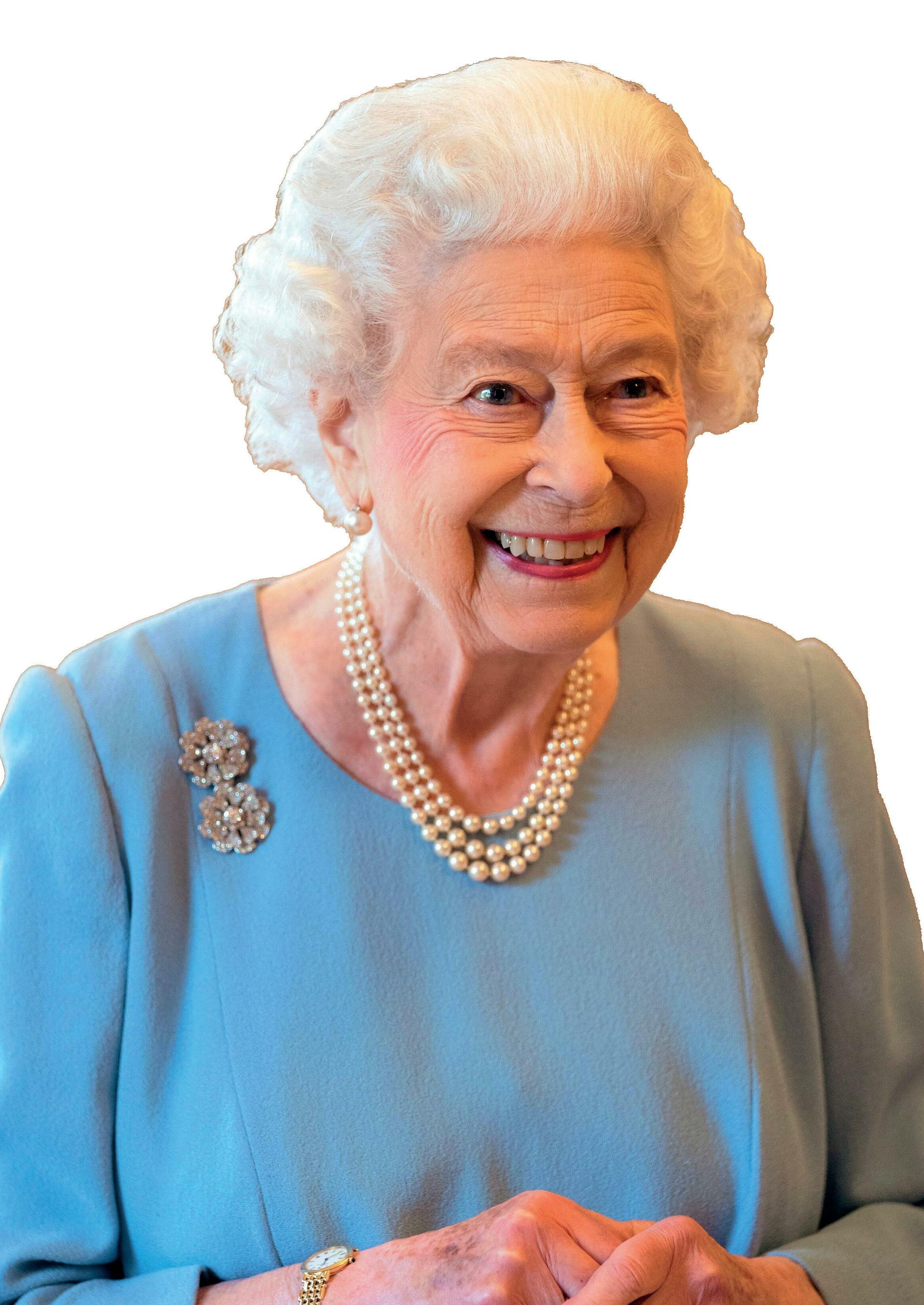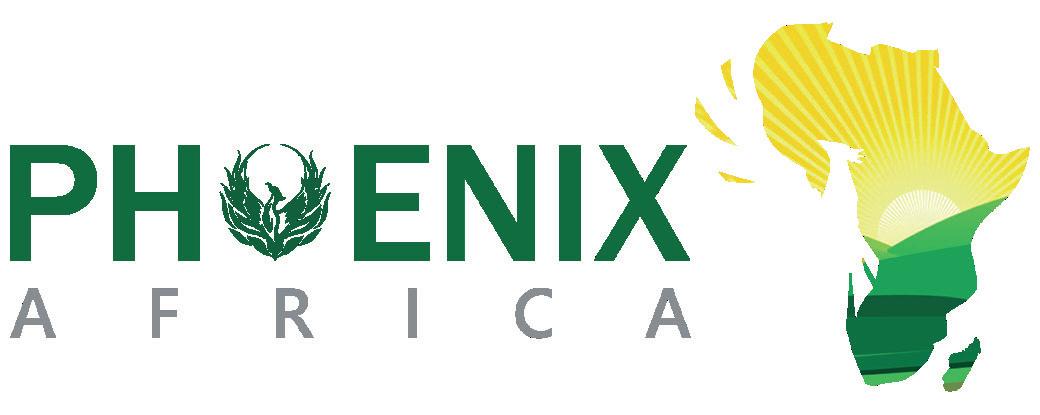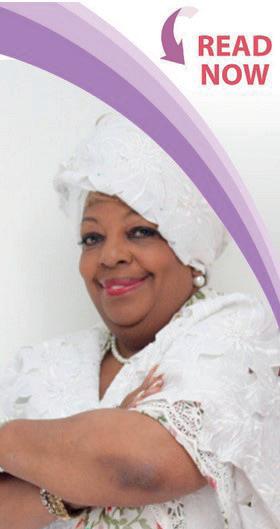



Dreams can come true in the RAF, regardless of your background or upbringing.
Honorary Air Commodore Dr. Marcia McLaughlin F.Birm.Soc
“





Dreams can come true in the RAF, regardless of your background or upbringing.
Honorary Air Commodore Dr. Marcia McLaughlin F.Birm.Soc
“
for the people and business community of Africa.
The Phoenix Africa is a fresh and vibrant publication bringing quality content to the masses. The first free newspaper to be published in Africa by Africans. Leading the way and setting trends.
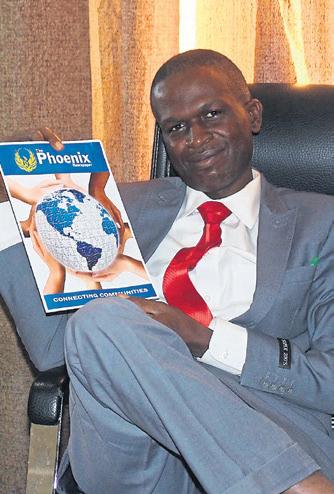
in this new and exclusive publication providing a platform for the Role Models that the next generation will aspire to be.
WThis is to certify that the bearer whose name and photograph appear on the overleaf of this ID Card is a certified correspondent of The Phoenix Newspaper, and this card must be returned upon leaving the company.
This is a sister publication to the successful “The Phoenix Newspaper UK” which has stayed true to its focus in providing a regular mix of Positive and Informative articles with an honest and unbiased viewpoint that have a direct connection the growing readership of 8million worldwide.
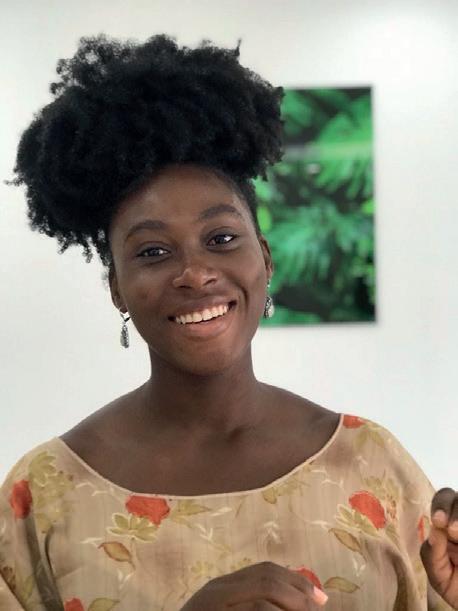
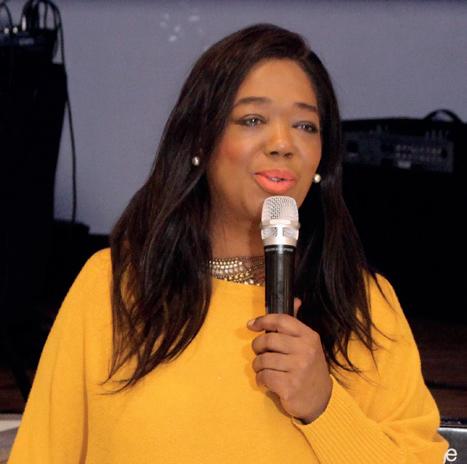
This
The Phoenix Newspaper is renowned as the “voice of the people” truthful and professional journalism, in depth reports and interviews, facts and not fiction, presented in a bright and refreshing publication that attracts and captivates its audience. Now these exciting developments are coming to the people of Africa in this Exclusive Free Newspaper & Online Publication.






address below
Station.
Building upon our success “Phoenix Africa” will contain exclusive news and developments from across the continent of Africa and the world, bringing detailed and authoritative reports and reviews of matters that reflect
advantage of in creating business opportunities thereby addressing the issue of poverty eradication.
People - discovering of individuals who stand out in their area of work .
Discovering and the empowerment of young talented youth and showcasing them to the world as well as older people who are achievers especially in the traditional institutions.
that the bearer whose name and
cardinal perspectives, which are places, events and people.
correspondent of The Phoenix
on the overleaf of this ID Card
and this card must be returned upon leaving the company.
This is to certify that the bearer whose name and photograph appear on the overleaf of this ID Card is a certified correspondent of The Phoenix Newspaper, and this card must be returned upon leaving the company.
These promote culture, discovering of talents, and achievers, (traditional, political, career, and academics).
to the address below or the nearestPolice Station.
found, please return to the address below or the nearestPolice Station.
Events - drawn from three main perspectives, festival, carnival and shows, as well as personal celebrations, birthdays, weddings, graduations and more.
6AT, United Kingdom
Working with the people and communities of Africa, starting in Ghana, which is seen as the Gateway, The Phoenix Africa
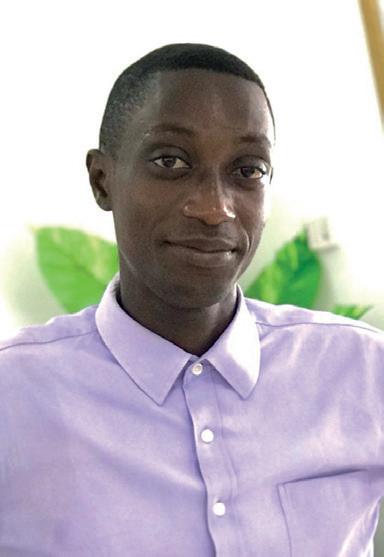

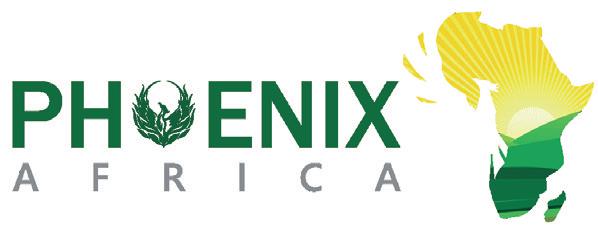
This is a platform that will create employment for many young people who aspire to be within this type of industry. It will invariably give them the chance to write their own narrative to reflect a more inclusive attitude when representing themselves, their culture and their people.
TPN Media, The Colmore Building, 20 Colmore Circus Queensway, Birmingham, B4 6AT, United Kingdom
Place - what are the reason behind the attraction of people, which invariably people will take
Welcome to Phoenix Africa, your one stop shop of everything positive.



name and taste on the lips of growing numbers of chocolate lovers across the world is that of Hotel Chocolat, a British company working closely with growers in St Lucia and now in Ghana to produce, arguably, one of the finest range of chocolate products on the planet.
But the Hotel Chocolat brand is not just about presenting a fine quality product, it is about using that opportunity to improve the lives of growers and develop new farming practises which are kinder to the environment and promote bio-diversity.
This approach has resulted in nothing less than a revolution in British chocolate and has caught the imaginations of a world of chocolate devotees.
It’s all thanks to the vision of two highly principled entrepreneurs, Angus Thirlwell and Peter Harris who set out simply to make chocolate exciting again.
Chocolate eaters got their very first taste of Hotel Chocolat’s products when the first shop opened in London in 2004.
Today customers can shop in 140 stores as well as cafes, restaurants, outlets and factory stores. There are more than 40 Hotel Chocolat stores in Japan and fans of chocolate can even holiday in the Hotel Chocolat luxury eco-hotel on its working cacao farm in the Caribbean.
This is impressive growth by any business standard, but it is underpinned by three defining principles enshrined in every aspect of the business: Originality, Authenticity and Ethics.
Original because Hotel Chocolat is on a constant quest to be fresh, creative and innovative and always
one surprising step ahead, taking inspiration from their cacao farms’ lush rainforest surroundings and classic British desserts and tipples.
Authentic because, as growers with direct links to cacao farmers in the Caribbean and now in Ghana, Hotel Chocolat has an intricate understanding of how to turn quality cacao beans into their irresistible
Ethical because the company recognises that its hard working customers have earned the right to excellent chocolate and that too many of the world’s farmers are working too hard to produce cheap
Hotel Chocolat is on a mission to bring the world’s love of chocolate back to the farmers who make it possible by ensuring that its farmers receive a fairer share of the rewards and the tools and expertise they need to grow exceptional cacao.

The result of applying these principles can be seen in the end chocolate products, in the lives of growers and in incremental improvements to the environment.
From the beginning Hotel Chocolat has challenged convention and broken the chocolate “rules”.
Ten years ago, when Easter egg producers were making their egg shells as thin as possible, Hotel Chocolat opted to go for “ridiculously thick” shells resulting in a snappable “feast” which caused an instant sensation.
When the world was wedded to bars of chocolate being produced in square bit-sized pieces, Hotel Chocolat literally broke the mould and introduced their now iconic Giant

Slab, inspired by the shape of the molten chocolate when poured onto the cool marble of the chocolatier’s table.
Such has been the Hotel Chocolat devotion to quality at every step from farm to customer that the company has created the world’s first “singlecote” chocolate to distinguish fine chocolate in much the same way that fine wines can be traced to individual vineyards and harvests, putting Hotel Chocolat products in a unique position.
Behind the scenes at the company’s Cambridgeshire head quarters, some of the world’s finest chocolatiers, food technicians and flavorists are always working on new ways of extending the enjoyment of chocolate with innovations like the Supermilk which gives Hotel Chocolat products its unique style, or Nutmilk for their vegan alternative products.
The innovation goes on always seeking ways to make more of every part of the cacao product and excite a demanding public appetite.
Experience counts for everything and Hotel Chocolat, having paid close attention to every facet of the growing and making of chocolate over the past twenty years, can now claim to be in a truly unique position as a leading industry innovator.
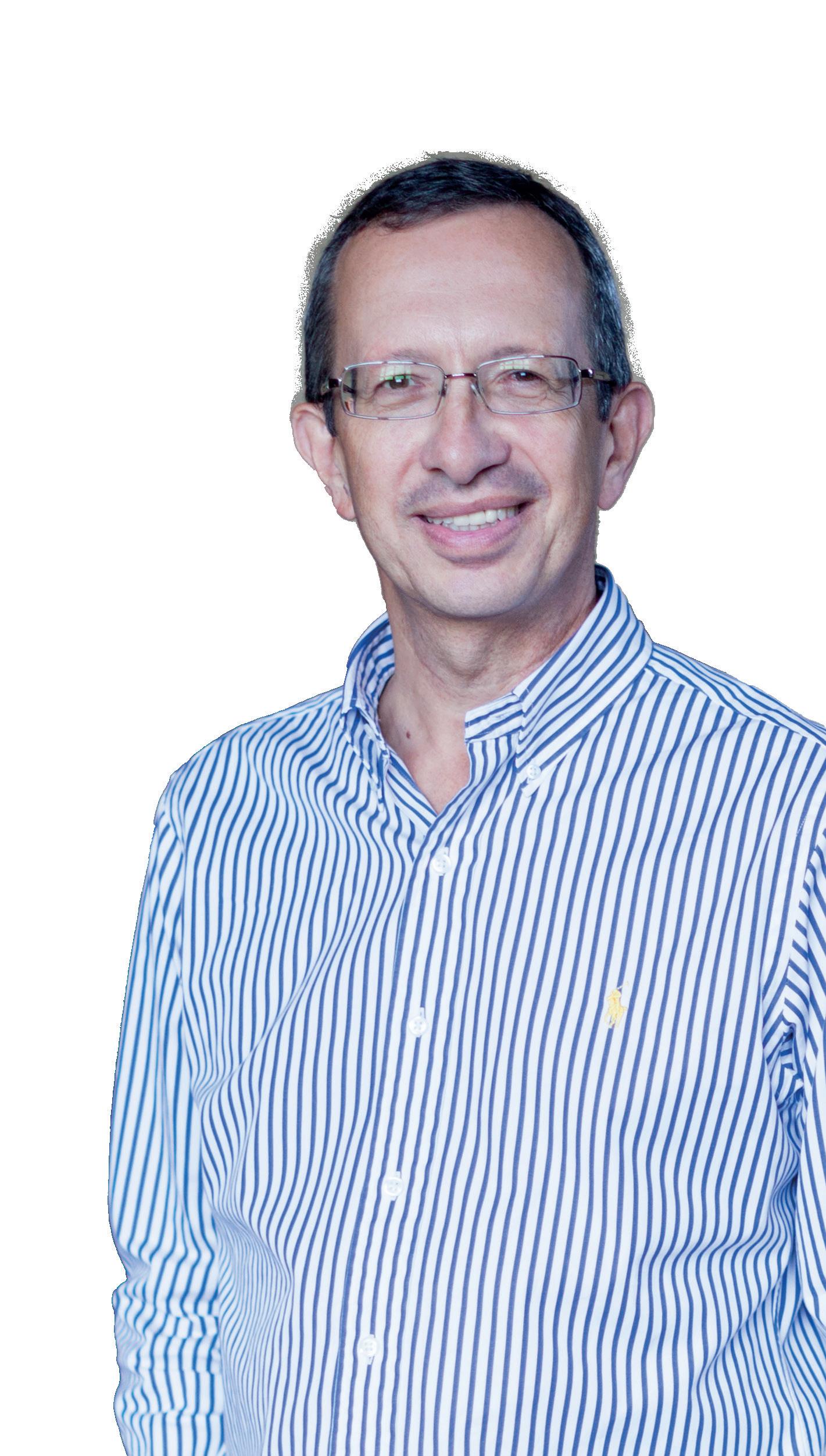
Hotel Chocolat is one of the world’s few chocolate makers to actually grow cocoa, on its beautiful Rabot Estate cacao farm in Saint Lucia and is translating that experience now to growers in Ghana.
Connecting cocoa-growing with luxury chocolate making and retailing gives Hotel Chocolat an indepth understanding of the factors that impact the final flavour of the chocolate, right from the growing tree.
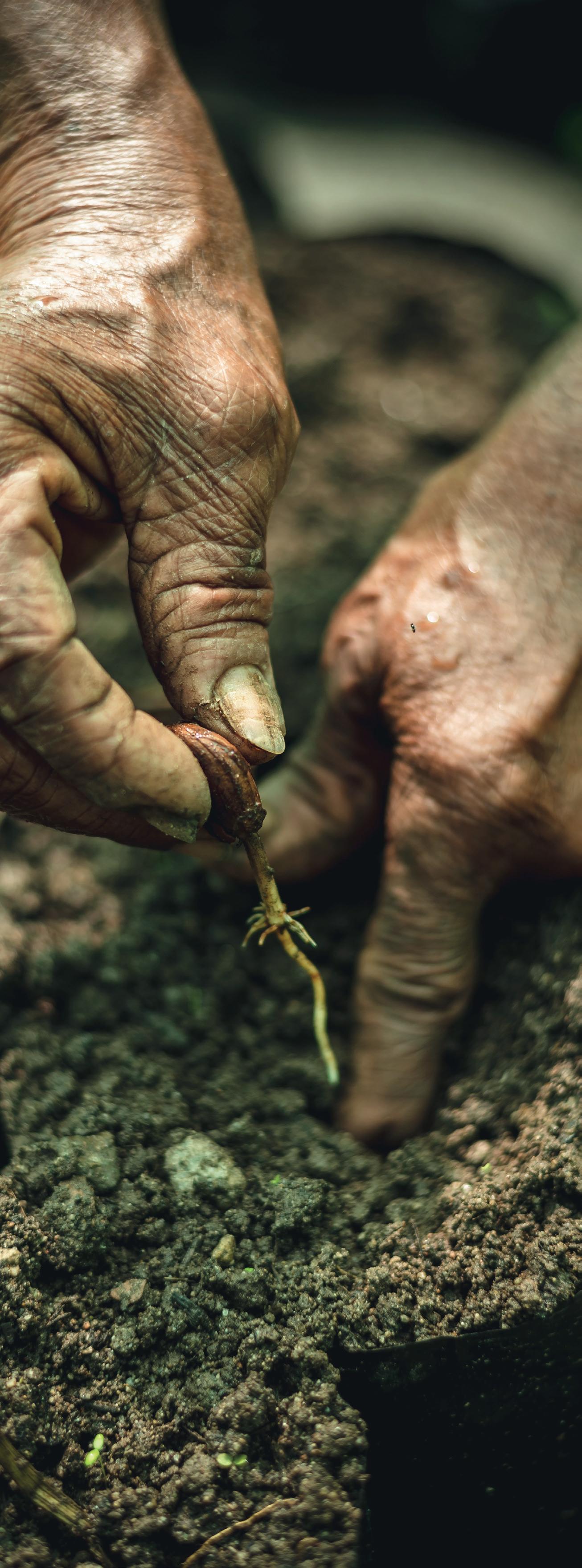
Centuries ago, the Mayan people revered the potent cocoa bean as a gift from the gods, but somewhere along the way its power has been lost in translation or perhaps in transaction.
As sugar prices have dropped, British chocolate has focused increasingly on sweetness. Today, sugar is 20 times cheaper than cocoa, and a typical bar of milk chocolate contains more than twice as much sugar as cocoa.
Hotel Chocolat has been determined to break that cycle and its mantra has always been ‘More Cocoa, Less Sugar’.
From the outset,
the company founders’ principle was that: “Cocoa will always be our number-one ingredient, even in milk and white chocolate.
“Most of the world’s ‘chocolate’ is laden with sugar – flip over the next bar you see and check. Our housegrade milk chocolates, meanwhile, are 40% and 50% cocoa, and even our white chocolate is 36% cocoa, well above the average”.
This balance of cocoa to sugar is crucial: high levels of sugar dull the flavours of the cocoa itself, denying tasters all those nuanced notes such as citrus, red and yellow fruits, coffee and brownie and masking the quality of the cocoa so that poorer quality beans can be used.
“Hotel Chocolat is also committed to using only real, natural ingredients – nothing artificial, ever. Nature supplies all we need.”
All of this sets the scene for what a growing number of Cacao farmers are pioneering in Ghana where over 97% of Hotel Chocolat’s cacao is now grown.
This agricultural effort now sees Hotel Chocolat working with more than two and half thousand farming partners in Ghana embracing the close involvement of the Green Tropics Group, a key National Government Organisation committed
• Peter Harris, Co-Founder and Development Director of Hotel ChocolatOperating its “Engaged Ethics” principles which are rooted in Hotel Chocolat’s deep sense of the need for fairness to farmers, customers and future generations, experience of the way in which farmers lives have transformed in Saint Lucia is already beginning to have an effect among the company's growers in Ghana.
Last year Hotel Chocolat launched its “Gentle Farming” programme: a pioneering initiative that seeks to further enhance the lives of farmers in Ghana.
This programme gives a guarantee that Hotel Chocolat’s farming partners will have a certified Living Income, in return for working with them to ensure that sustainability goals are met, and robust commitments to ethical labour practices are maintained.

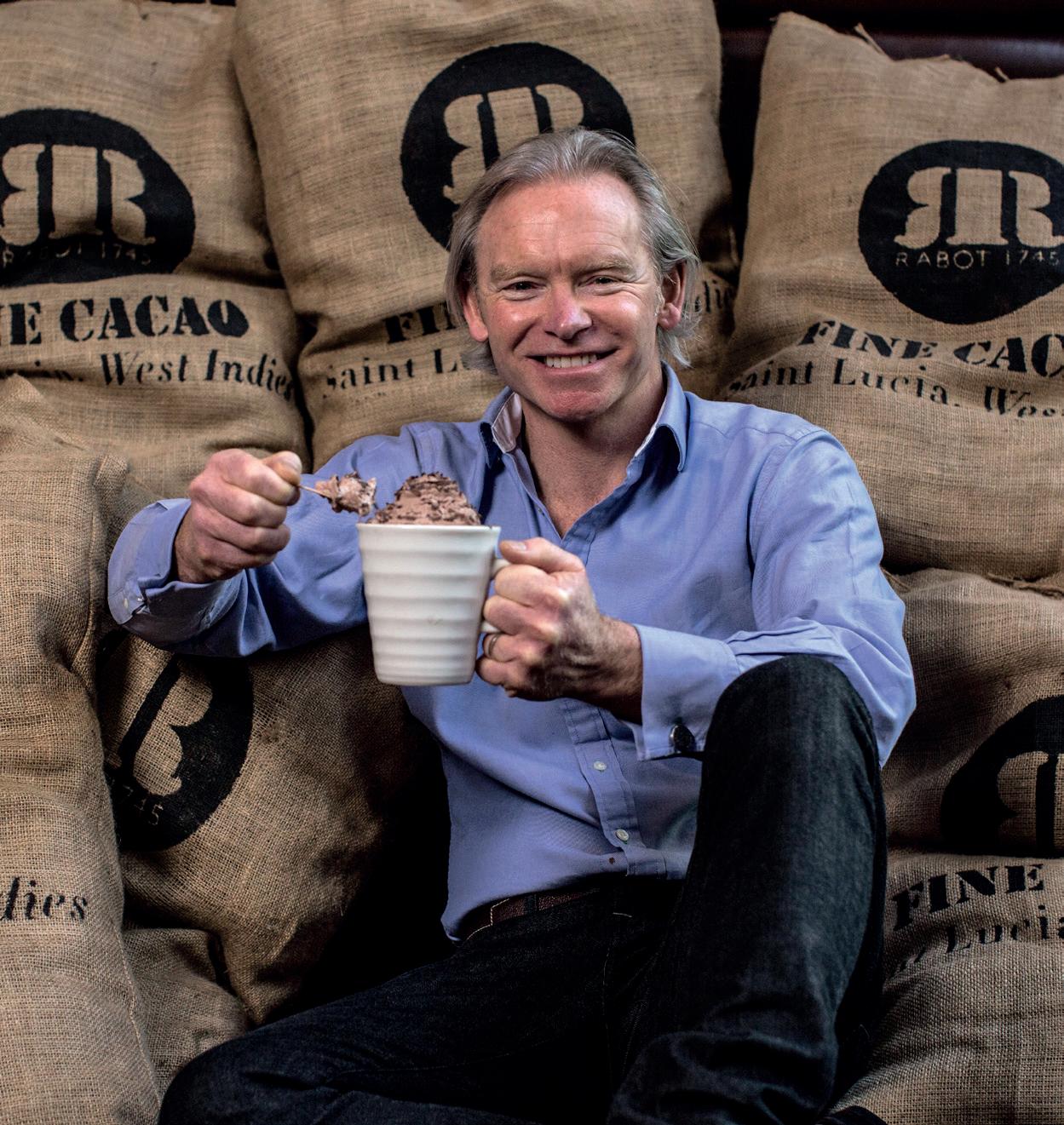
Hotel Chocolat is also working with cooperatives and grower schemes in other parts of the world that adhere to these same ethical principles.
Angus Thirwell passionately believes that: “Being ethical is at the heart of everything we do, and it’s been rooted in our brand from the very beginning. We treat workers fairly, tread lightly on the planet, strive to leave things better than we found them and act with a conscience.”
Hotel Chocolat believes that ethical cacao production is a journey, not a destination. Companies that really want to get it right need to continually reflect, re-asses, measure and develop their ethical business practices and learn about the complexities and nuances of each region they work with. These methods are not fixed entities, they grow just like the cacao we all love so much.
That’s why Hotel Chocolat confidently claims that their cacao is ethical, whether in St Lucia or Ghana or in other regions around the world.
And this claim is underwritten by the Hotel Chocolat Cacao Sustainability Charter which is set out like this:
• Traceability back to exact farm location
• Understanding farmer age and gender as part of our commitment to preventing child labour
Our vision:
Farmers work on a professional and diverse farm, which is self-sustaining
Key achievements:
We’ve appointed an independent agency to interview our farmers to identify what they require, in order to further improve our programmes
• Raising incomes to Living Income standards.
• Funding best practice educational and Young Farmer programmes
to encourage cacao farming as a viable career, and sustainably improve farm yields.
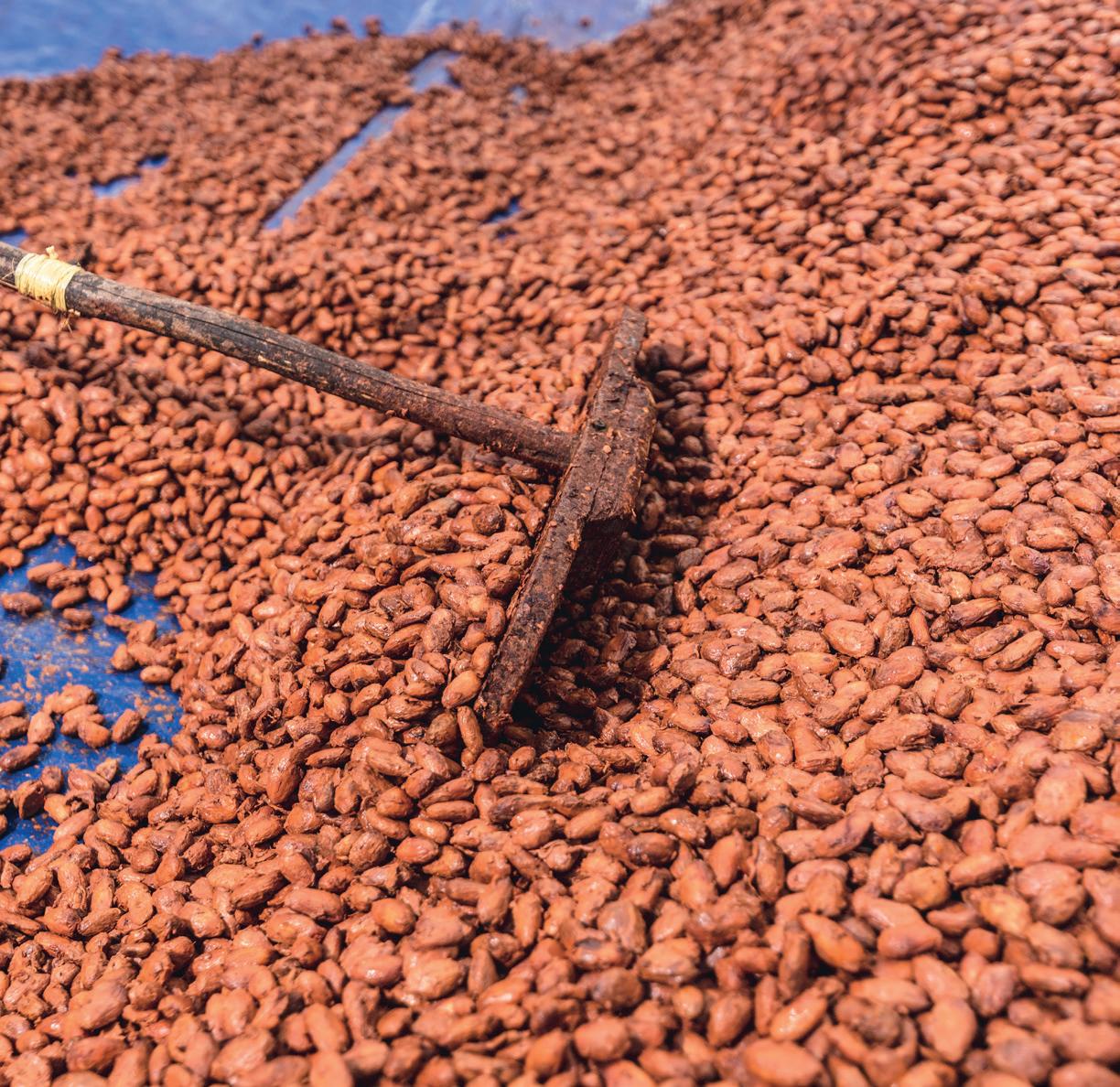
• Gentle Farming program (Sep 2021 onwards, Ghana) to further improve climate change resilience and enhance biodiversity.
Our Vision:
Cacao farmers deserve the same respect as growers of fine Syrah and Chardonnay grapes. They are fairly compensated so that they can afford a living income for themselves and their families.
Key achievements:
• Weekly radio shows share farming tips with remote communities
• Guarantee to buy all yields from our farmers.
• Guarantee to pay a premium price per kg significantly above marketrate: Equitable or better than Fair Trade.
• Putting the infrastructure in place to support the health and education of our farming communities
• Child labour prevention
Our Vision:
Robust structures are in place that enable communities and government to continually address the root causes of child labour and adapt best practice to prevent it
Key achievements:
• Over 2,500 medical treatments at the medical centre in Osuben that we funded.
• 6 boreholes providing clean water for farming communities in 2019 and 2020.
• Child Labour Monitoring and Remediation scheme operating in Ghana
• Gentle Farming Charter (Sep 2021 onwards, Ghana) to level up existing strategies and provide even greater community support, including total eradication of child labour.
• Encouraging and facilitating tree planting
• Ensuring no deforestation
• Shade-growing and biodiversity incentivised and measured.
• Farms GPS-mapped to help monitor the above commitments
Our Vision:
Farmers’ land is free from deforestation, and farming practice is environmentally friendly, including crop diversification and to mitigate climate change impacts. This is continually monitored and adapted in accordance with the latest best practice.
Key achievements:
• Farmers commit to zero deforestation in return for premium price
• All farms GPS-mapped and confirmed not adjacent to protected land
• Six nurseries that we fund in Ghana alone have supplied over 100,000 quality tree seedlings this year.
• Angus Thirlwell, Co-Founder and CEO of Hotel Chocolat• Monica, a cocoa grower in Ghana for Hotel Chocolat
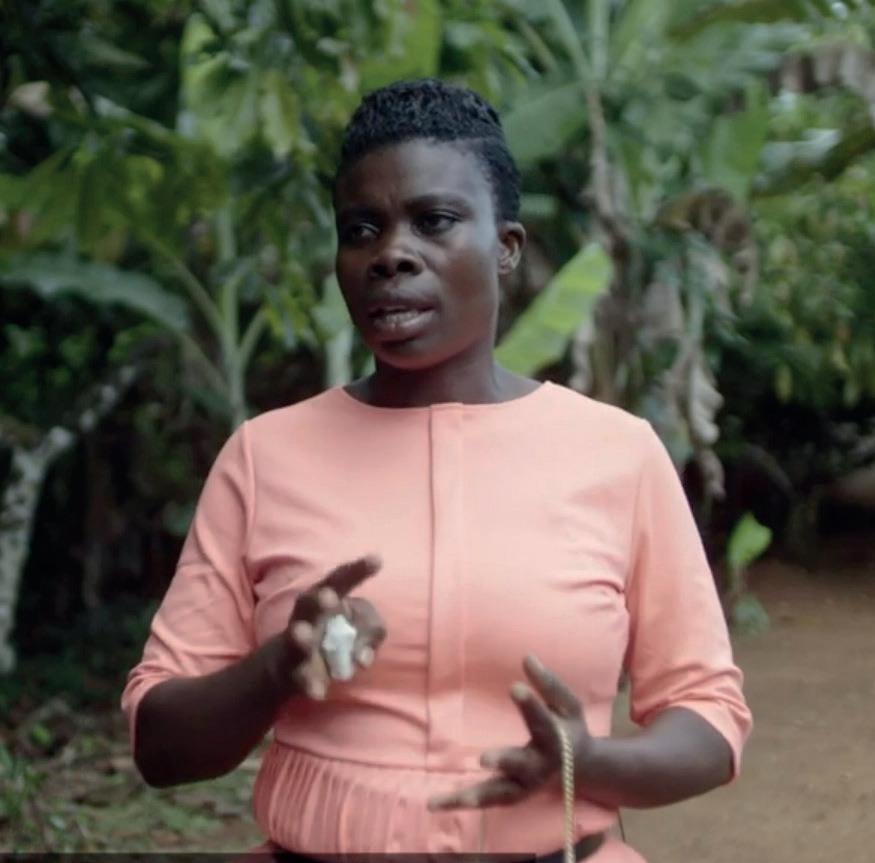
This highly principled holistic approach to business reflects Hotel Chocolat’s genuine concern for not only creating world class chocolate, but for creating a better world, working in a way that is kind to our planet and reversing the trend for destroying our natural environment in pursuit of short term profit.

This is how two cocoa growers in Ghana sum up their early experience of working with Hotel Chocolat:
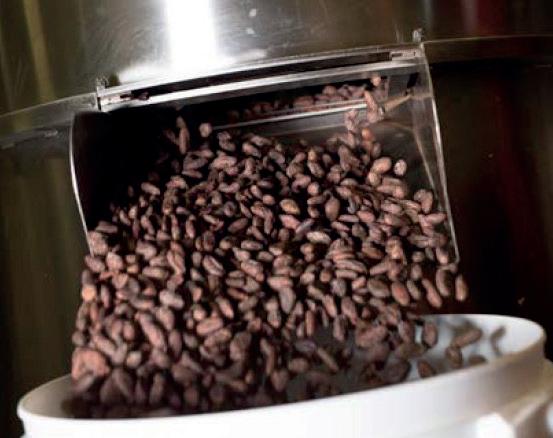
Sophia: “My children are the main reason why I am cultivating cocoa. I started my cocoa farm 20 years ago. I am 45 years old. I couldn’t attend school, so I decided to farm cocoa so that I can take good care of my children.
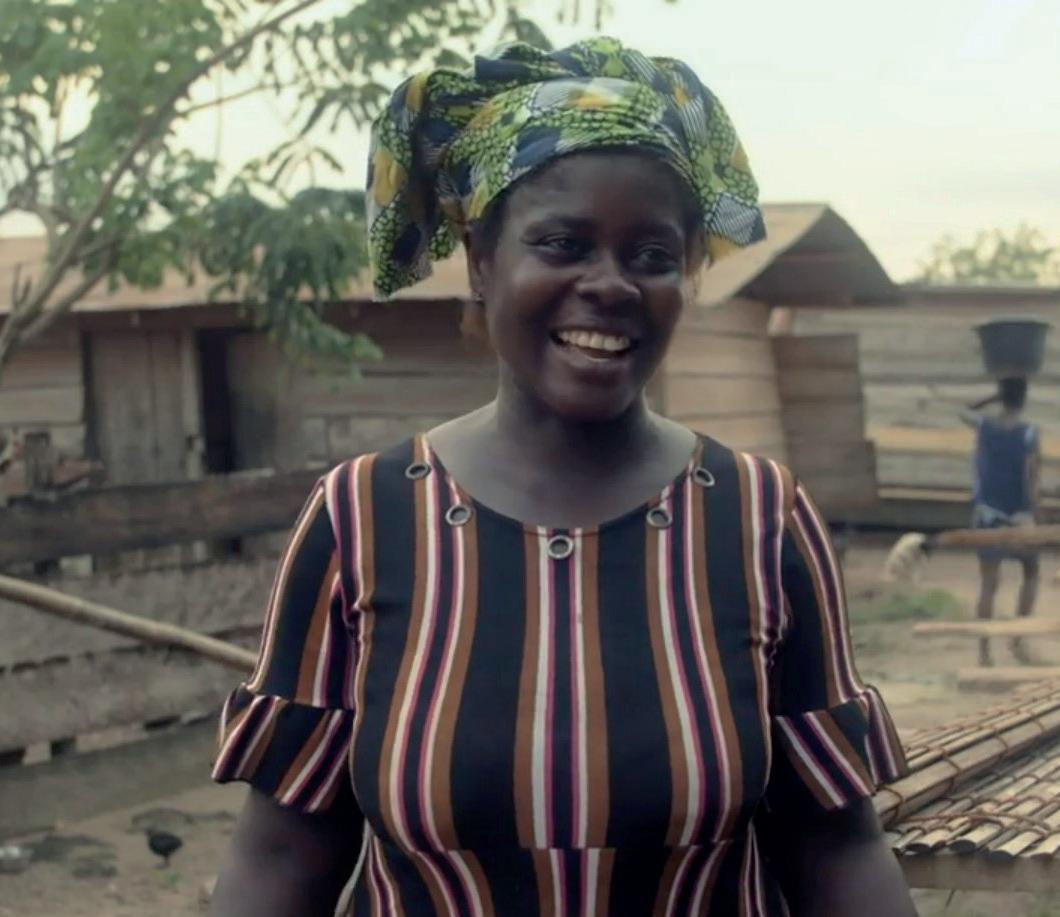
“Now that I have found out about the programme premium, I’m so excited. The group has really helped me a lot because accessing loans to expand or manage my farm is now easy. I used to weed the farm myself because I didn’t have enough to hire extra hands.
“I always pay the loans back when I sell my cocoa beans. I am really happy to hear that we the cocoa farmers are going to enjoy this new payment - now I can take really good care of myself and my children.”
Monica: “I like chocolate, when I was a kid my mother used to buy it for me. I was listening to the radio one day and they wanted young ladies and gents to be in cocoa farming, and said if you are interested, you should come and pick up a form.
“My grandma used to be a cocoa farmer so I decided to be a cocoa farmer, the best one! I started on a piece of land that my mother gave to me.
“They took me to Bunso cocoa training institute and taught me a whole lot, not only about cocoa farming but about crops like maize to give shade to the cocoa, so you get a little income from that before getting
“I get excited to see my cocoa plants produce a good yield. Compared with what my grandparents were doing it’s far better than the old days because if you follow the procedure you produce a whole lot of good yields and you will earn more income than our grandparents did.
“I use this income to take care of my kids. The cocoa farming gave me money to pay their school fees and for me to feed them.
“Now my first son is to join the Air Force in the near future and the little girl wants to be a nurse so I am praying for her too, and my little boy wants to be a soldier. So I am praying that everything will go on by God’s will."
• Sophia, one of Hotel Chocolat’s cocoa growers in GhanaNayiri - Naa Bohugu Mahami Abdulai Sheriga is the King and Overlord of the Mamprugu Kingdom and President of the North East Regional House of Chiefs who has over 45 paramount Chiefs and over hundred Divisional Chiefs and several SubDivisional and Sub- Chiefs under his enskinning authority and the only king in Ghana who has his traditional control outside the boundaries of Ghana.
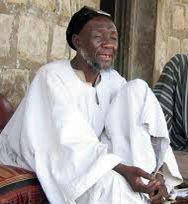
Thus, this means he has two Paramount chiefs in Burkina Faso and one in Tongo who are all under his enskinning Authority and also have a over nine Paramount chiefs in the Upper East Region but are all under his enskinning authority and all pay allegiance to him.
One May ask why he controls places outside his Region and Country?
It is very important to know that, traditional boundaries transcend administrative boundaries and hence why he controls all those areas.
However, many other tribes or groups in the North pay homage to him or fall under his reign. The Nayiri is well respected and well loved by all in the Kingdom and outside.
The Vice -President of Ghana was raised and mentored by the Nayiri The VP is considered as his own and of course a son of the Mamprusis.
The Phoenix Newspaper recognises the amazing life and achievements of The Nayiri - Naa Bohugu Mahami Abdulai Sheriga, and wants to honour him in this special feature.
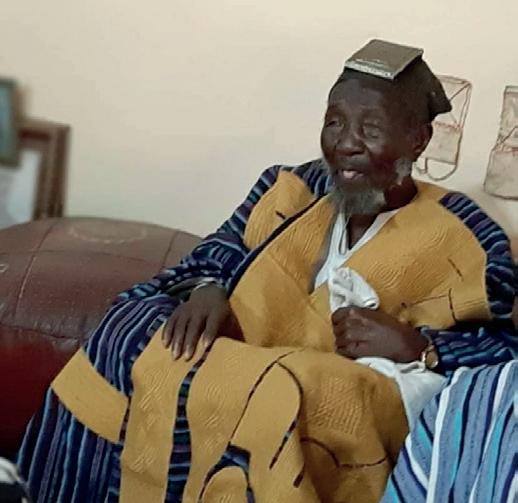
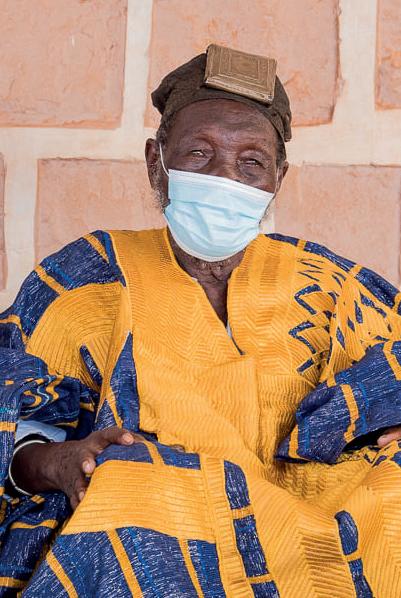
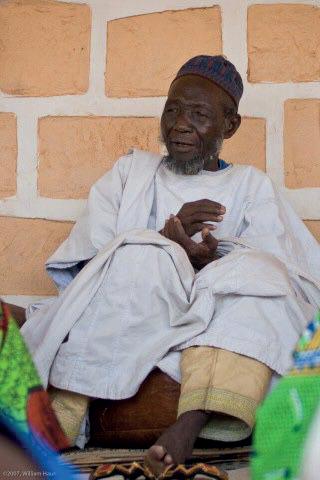
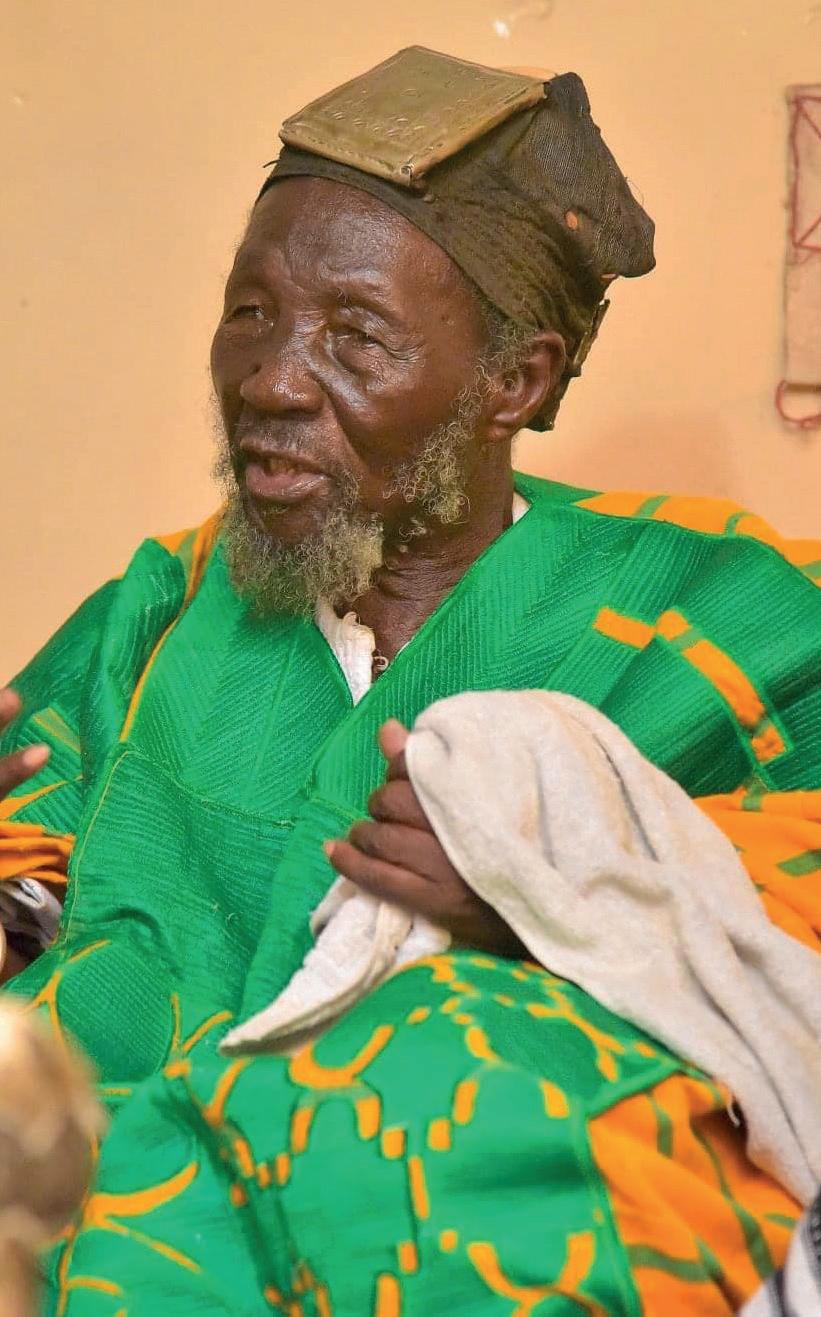
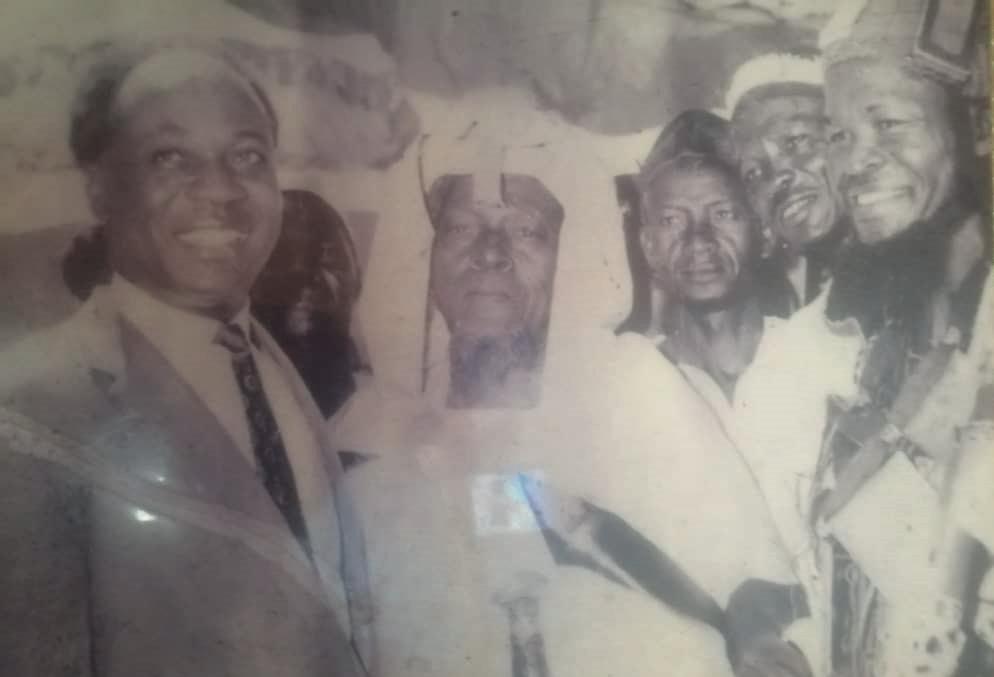
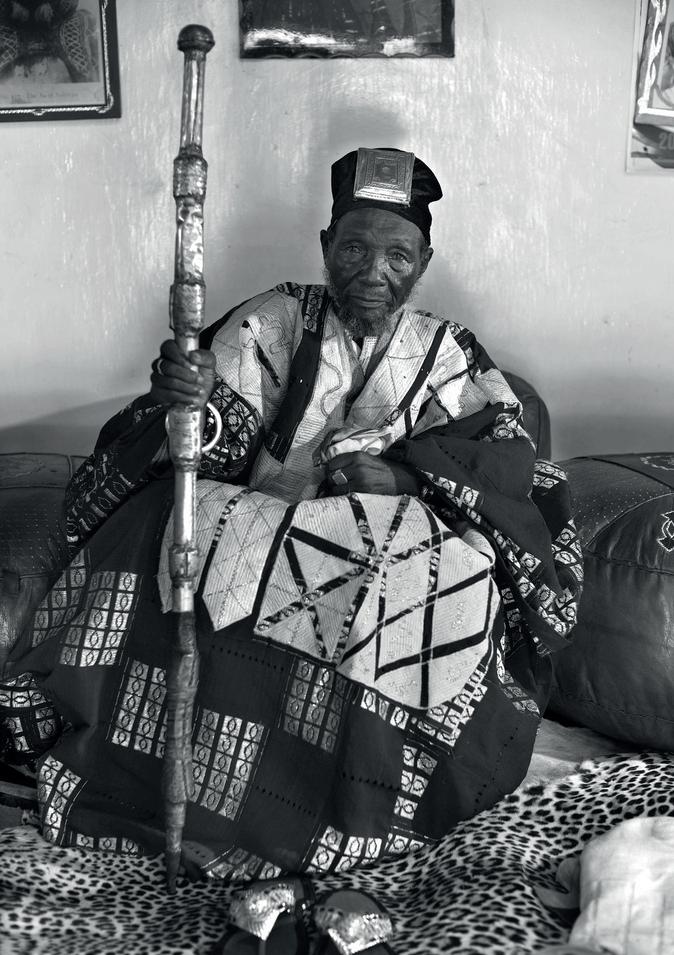
It was a day of firsts for 7644 Squadron’s new Honorary Air Commodore Dr Marcia McLaughlin in her inaugural visit to the Reserve unit’s HQ at RAF Halton in Buckinghamshire.
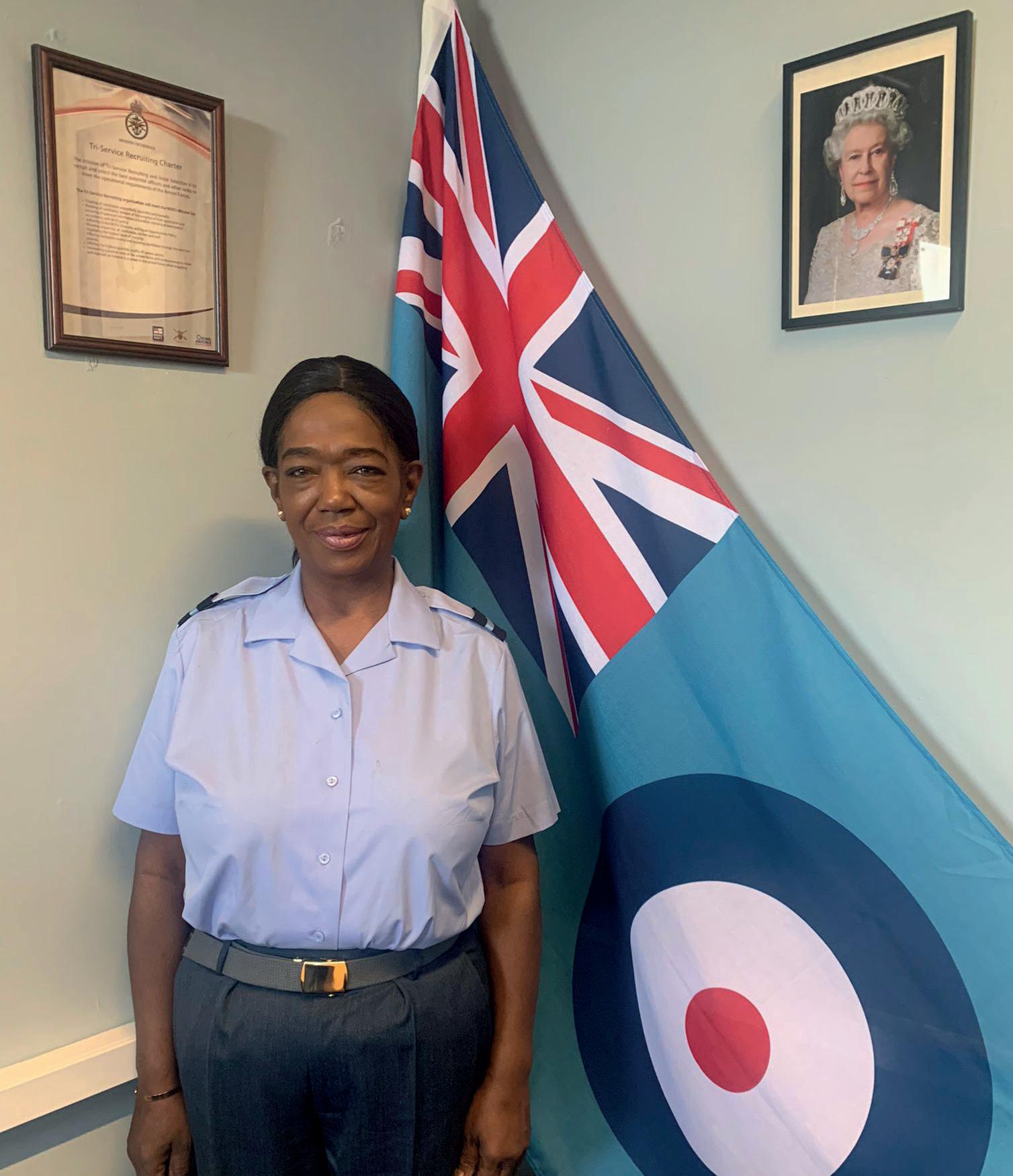
Dr McLaughlin, whose appointment was approved by Buckingham Palace in May, was delighted that her first official task was to award the Queen’s Platinum Jubilee medals to squadron personnel, the first medal being presented to Corporal Agy Rudel, who has served for seven years as a digital media specialist with 7644.
In her “day job” Cpl Rudel is a multi-media manager for a Harrogate-based company. These medals mean a great deal to Reservists who must have given at least 1862 days of service and maintain their operational efficiency for 5 years in order to qualify, a fact not lost on Dr McLaughlin who was impressed with the dedication of the unit
personnel who all have civilian careers but lend their spare time to serving our country.
The deputy head of communications for the RAF then presented Dr McLaughlin with her official Commissioning Scroll in which Her Majesty the Queen clearly states the duties Dr McLaughlin will be asked to undertake during her 5 year appointment.
Squadron members were enthralled with Dr McLaughlin’s address during which she related stories from her own awardwinning career, spanning more than 30 years in the media.
Her Birmingham-based publication, The Phoenix Newspaper, boasts the mission statement ‘Connecting Communities - Inspiring the Next Generation’ and focuses on social cohesion and has strong echoes to the guiding ethos and practises of the Royal Air Force.
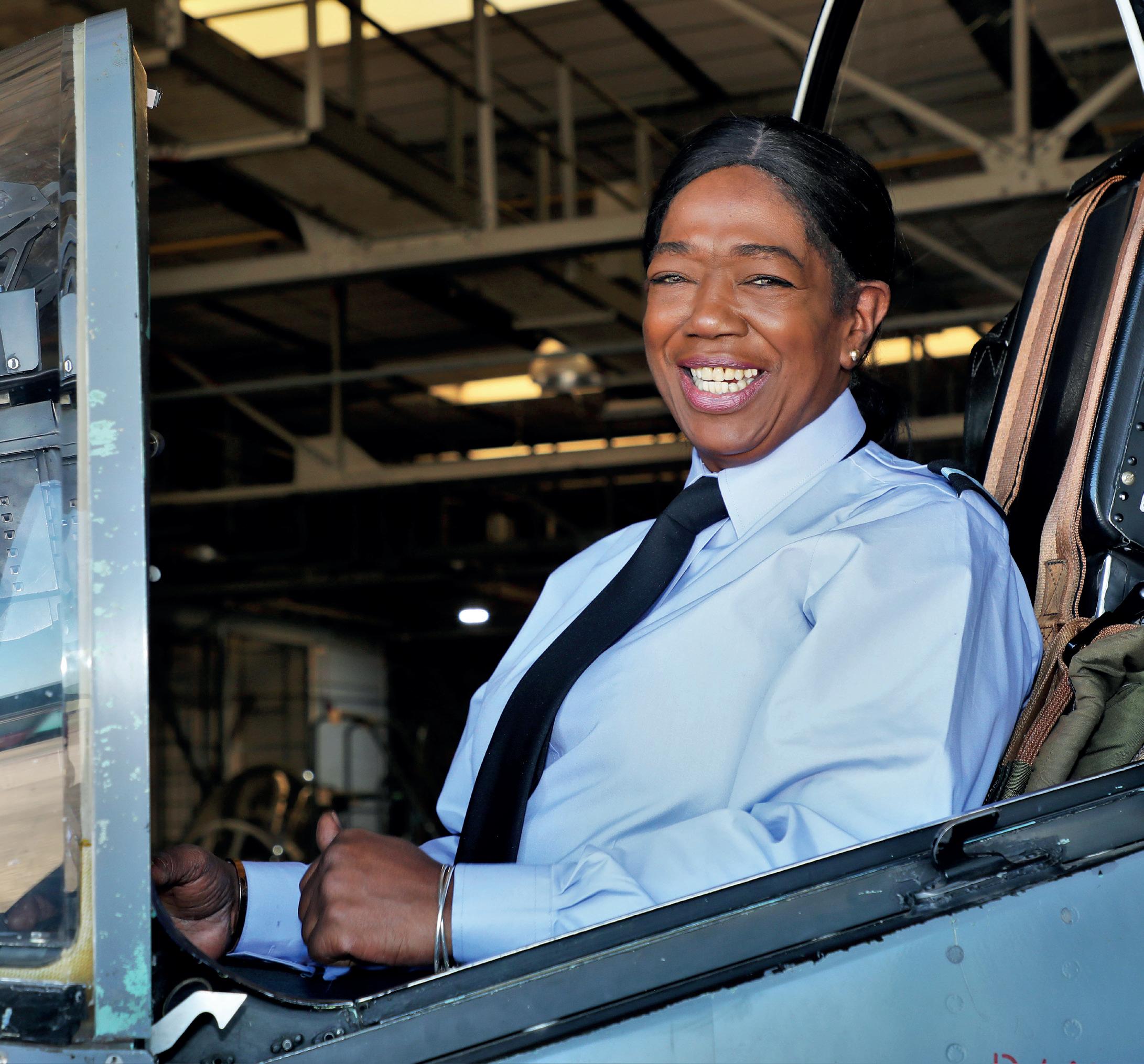
Dr McLaughlin said: “I believe that communication is key to the harmonious co-existence of communities. Knowing and being able to understand your neighbour breaks down barriers that can cause conflict.”
She added: “The media is the most influential platform we have and we must utilize it to reach the individuals that make up each community.
“Ever since signing the Armed Forces Covenant, I have been trying to put into practice the promises I made on that night, and this role is a direct extension of those promises.”
Each of the 26 Royal Auxiliary Air Force Squadrons across the country have an Honorary Air Commodore, chosen by each Squadron for their military or professional expertise to learn about the work of the RAF and its Reserve Squadrons and become ambassadors for the units and help to improve public understanding of the work the RAF does in the defence of our country and its allies and partners.
Air Vice Marshal Ranald Munroe, Commandant General of the RAuxAF said: “Our Honorary Air Commodores, working in a purely voluntary capacity, bring to the Royal Auxiliary Air Force vast experience from their military or civilian backgrounds, are a priceless source of advice and knowledge in their fields of specialism and greatly extend our network of key contacts to assist the service to continue to grow and improve its contribution to defence and civil society in our country”.
Dr McLaughlin was appointed because her background as a life-long journalist and publisher is entirely compatible with the work of a busy specialist media Squadron whose subject matter experts contribute greatly to the communications work of the RAF.
7644 Sqn reservists are regularly deployed to accompany the RAF where ever it is working and gather video footage, imagery and editorial content to help to tell the vast range of stories about the work that RAF personnel are doing.
This can be anything from training with partner nations to offering military and humanitarian assistance in times of crisis.
As a working journalist herself, Dr McLaughlin well understands
the pressures of operating in challenging environments and delivering to a deadline and is full of admiration for the Squadron members who she will be working with in the months and years ahead.

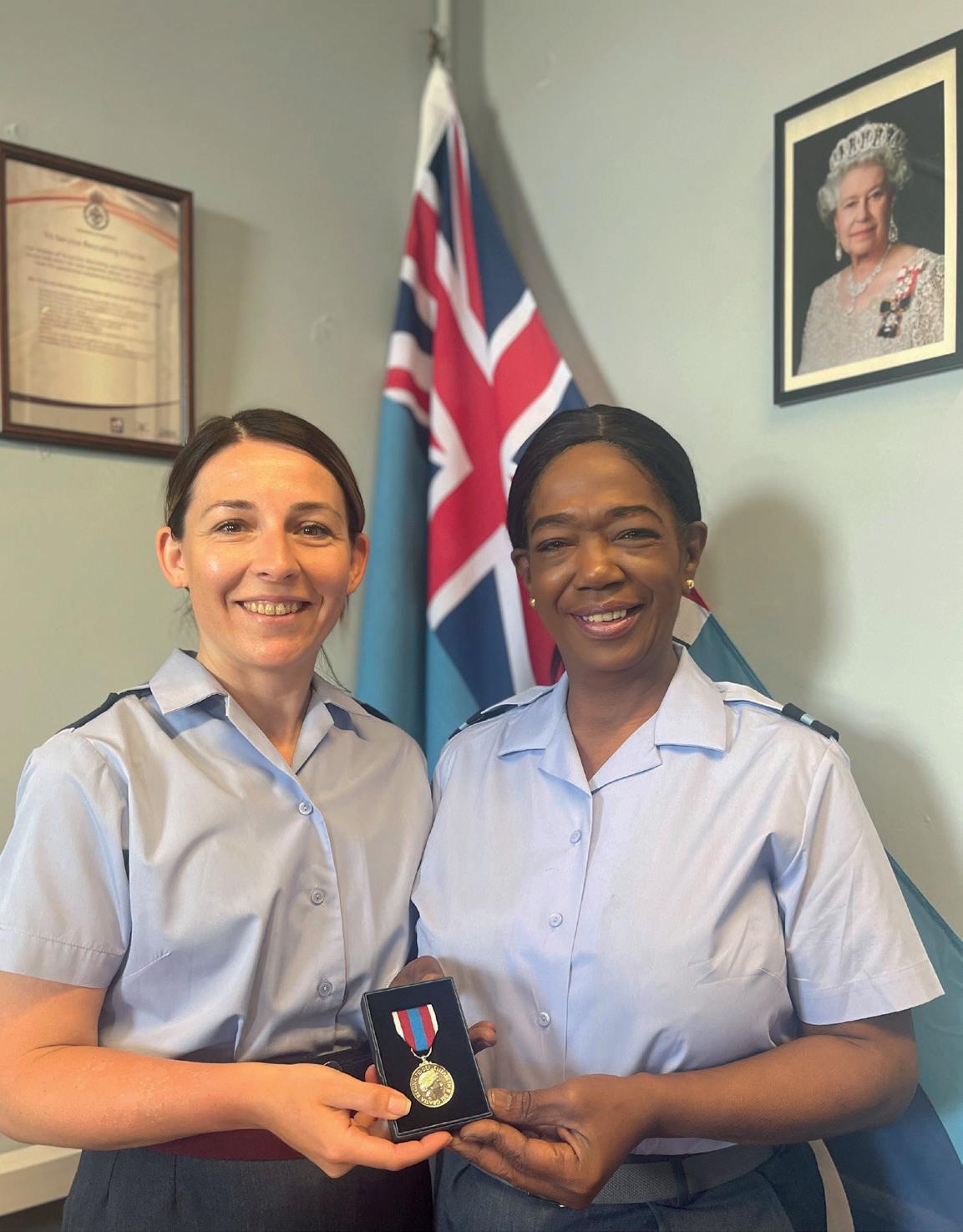
She said “These are very skilled media practitioners who are dedicated to the public service they give in their spare time and I am honoured to be a part of the unit”. She added “I believe my role will be an opportunity to promote common good and excellence in service.
“Decency and respect, togetherness and humility. I feel the work that I will be doing as Honorary Air Commodore, is almost a mirror of what I feel is needed to get the message across to young people, and to the wider community as a whole, that there is a good career to be had, and dreams can come true in the RAF, regardless of your background or upbringing.”
RfP has long recognized deeper process of reconciliation is profoundly to achieve positive RfP knows well that profound and unique can - if mobilized adapted - contribute
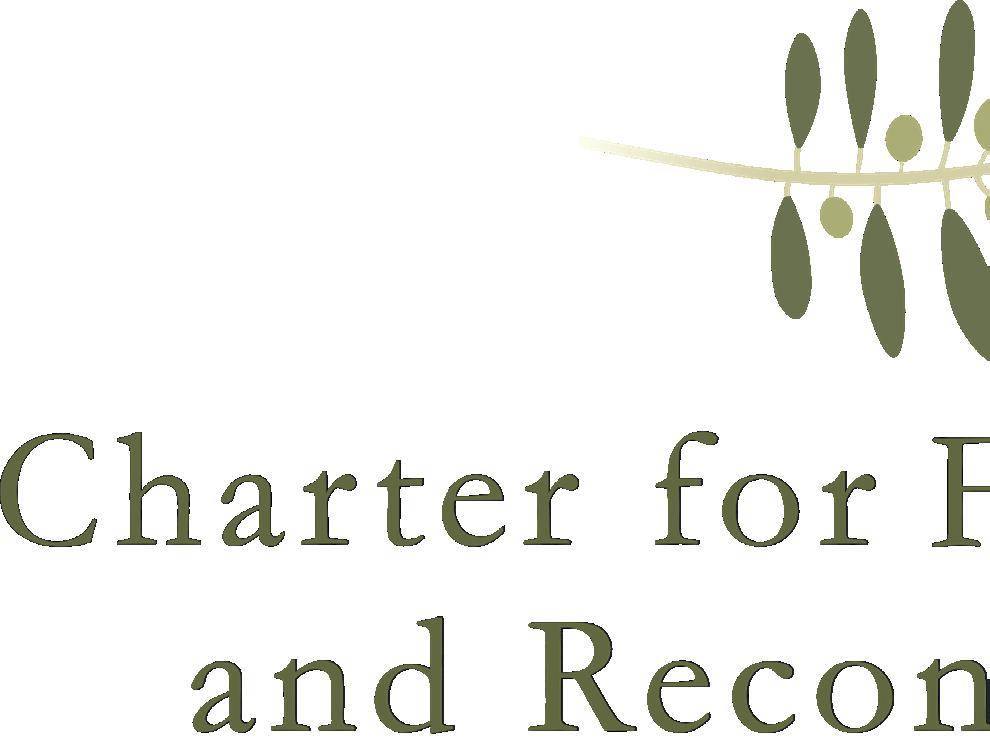
Adopting the Peace to equip the RfP affiliated multi-religious the important work by raising awareness, understanding, reflection on the forgiveness and sustainable positive The Peace Charter lovingly inspire, educate guidance in processes reconciliation and amongst persons, types and nations. also be a resource historical memories various histories. vital contribution education in formal settings, thereby more the foundation and peaceful persons,
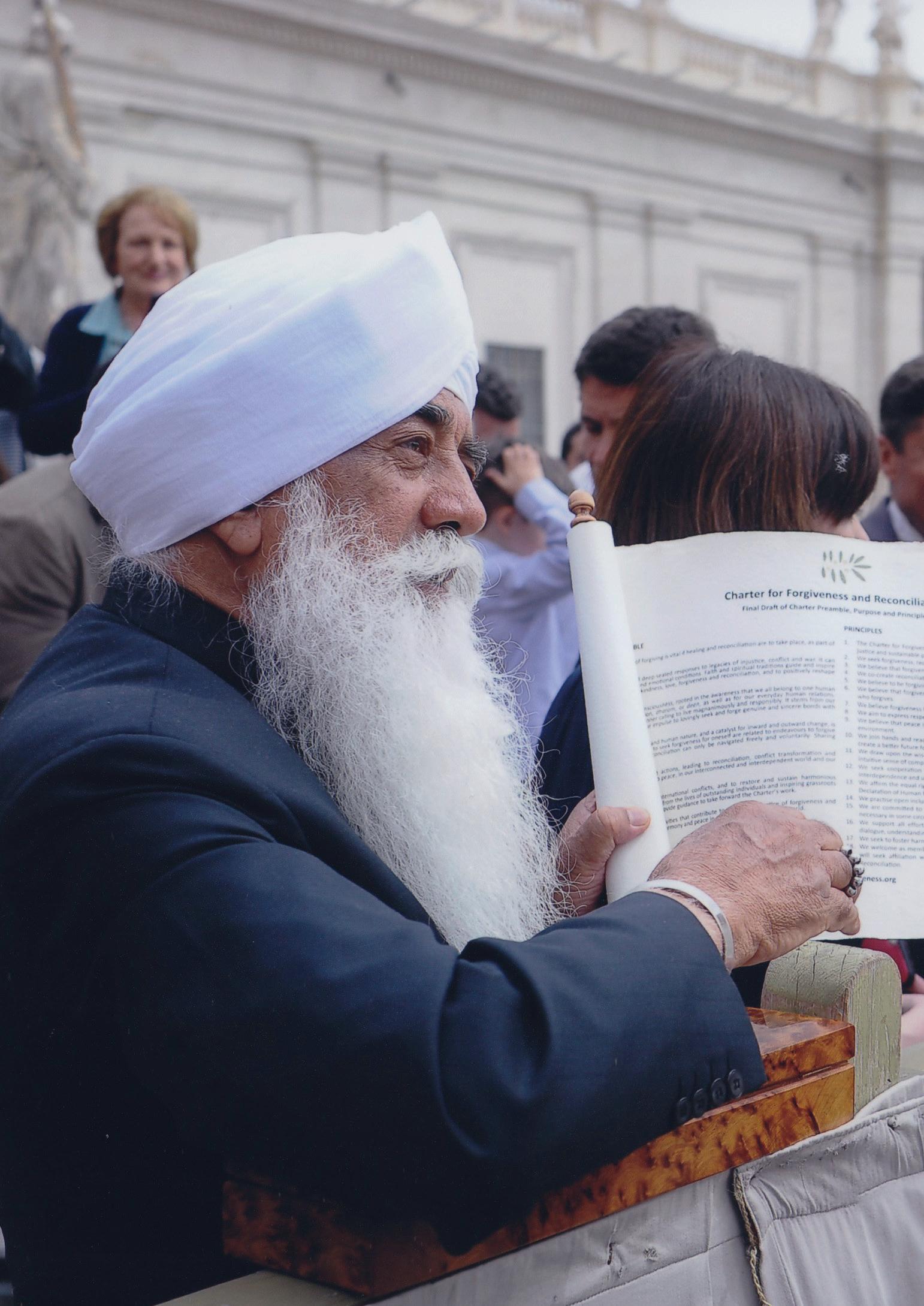
recognized that a of forgiveness and profoundly needed positive Peace. Moreover, that religions have unique resources that mobilized and creatively contribute to reconciliation.
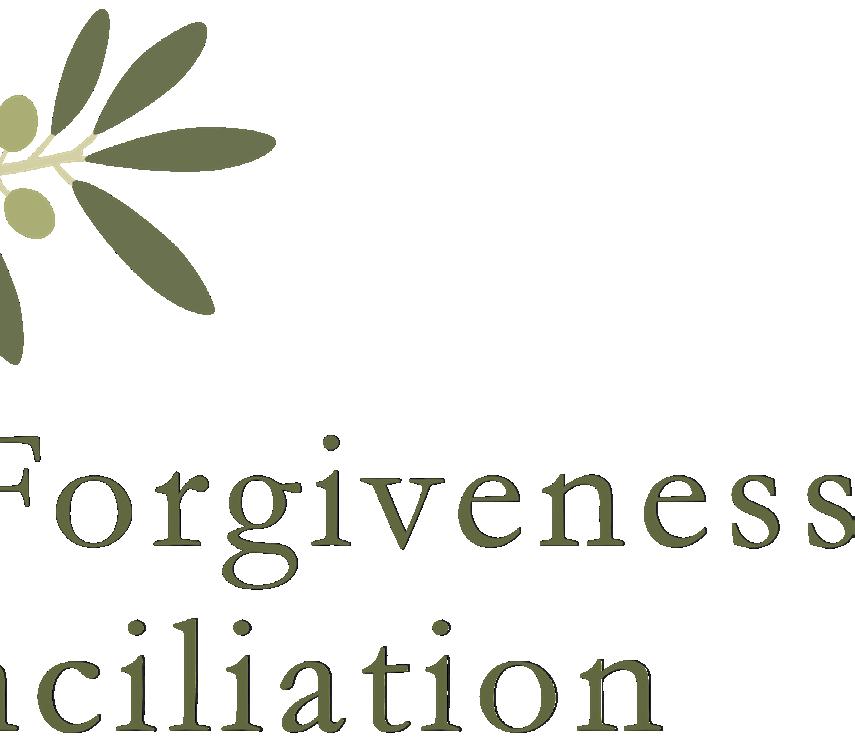
Peace Charter will help RfP global family of multi-religious bodies for work of reconciliation awareness, deepening and increasing the crucial role of reconciliation in positive peacebuilding.
Charter is a tool that can educate and provide processes of forgiveness, and peace building communities of all Importantly, it can for healing painful memories within religions’
It will also make a to value-led peace formal and informal strengthening ever foundation for more just persons, communities
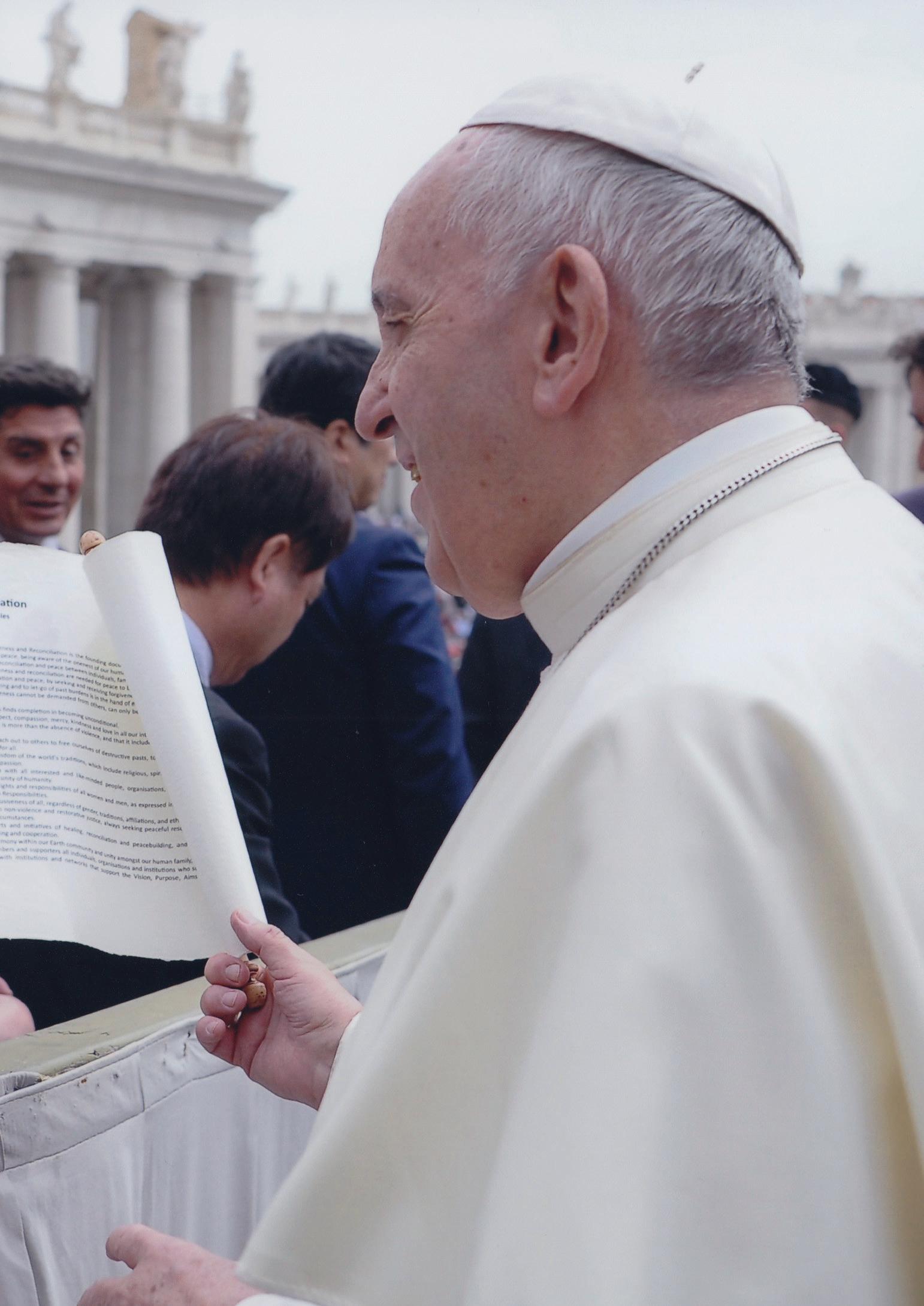
We are delighted to introduce the Peace Charter for Forgiveness and Reconciliation to Africa.
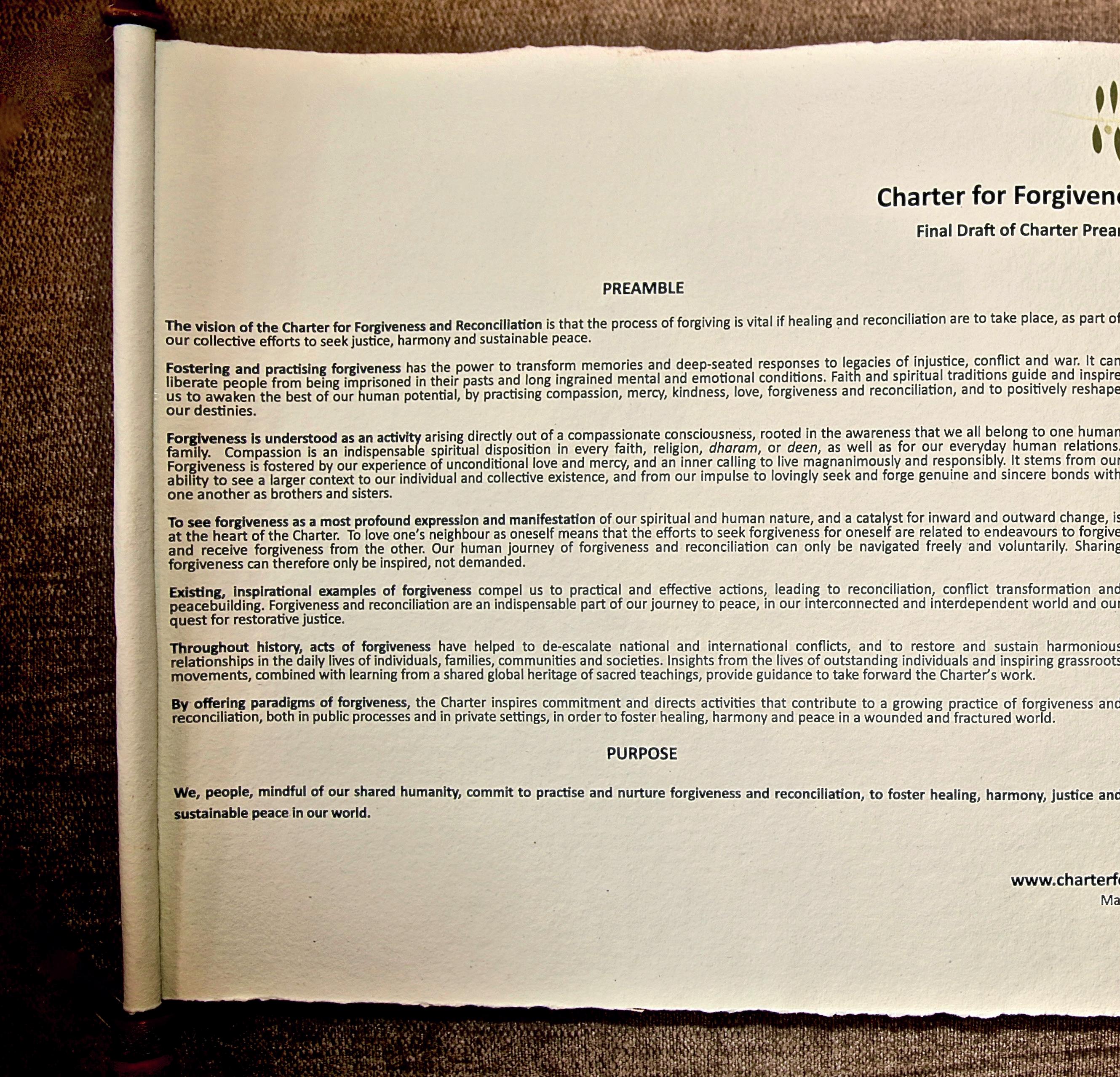
We look forward to learning together, with all our brothers and sisters, with young and old, how we, together, can make our world and our communities a better place in connecting and being inspired by the rich history, faith and traditions of Africa, with its many outstanding examples of seeking peace and reconciliation in difficult circumstances.
Ubuntu and Mpatapo, seeks forgiveness, reconciliation, unity and peace, sharing within our common humanity, united in faith and love for all of creation.
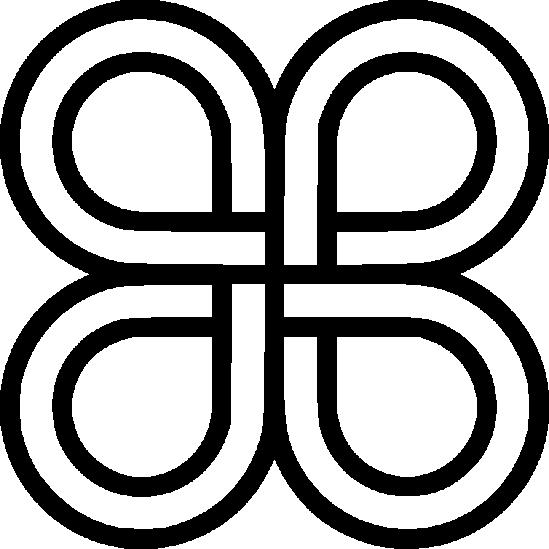
Please join us on this journey, here in
Ghana. Thank you.
The Peace Charter for Forgiveness and reconciliation was adopted by the 10th World Assembly of Religions for Peace (RfP) which convened from 2023 August 2019 in Lindau, Germany.
The World Assembly, opened by the President of Germany, was attended by some 900 global religious leaders and delegates. Religions for Peace International is the world’s largest and most representative coalition of religious and indigenous communities. It operates in over 90 countries.
The concluding declaration of the World Assembly stated, “We are grateful for 49 years of determined focus on building peace and on speaking for those most in need.
“We are an alliance of care, of
compassion, of love. …We adopt The Peace Charter for Forgiveness and Reconciliation, convinced that transforming violent conflicts requires the healing of historical wounds and painful memories, forgiveness, and reconciliation.
“We commit to integrating efforts for healing into all our conflict resolution work.”
The Peace Charter was presented to the 10th World Assembly by the co-convenors of the Peace Charter, Bhai Sahib Mohinder Singh Ahluwalia KSG, OBE (Chairman of Guru Nanak Nishkam Sewak Jatha, UK, and CoPresident of Religions for Peace) and Dr William F. Vendley (outgoing Secretary-General of Religions for Peace), and by the Peace Charter’s Director Dr Josef Boehle (University of Birmingham, UK).
The Peace Charter’s organisational development began in 2011 and has received support from a wide range of religious, political, academic and civil society leaders.
The Guerrand-Hermes Foundation for Peace (UK), the Fetzer Institute (USA), Religions for Peace International, the Guru Nanak Nishkam Sewak Jatha (GNNSJ), UK, and the Nishkam Centre, Birmingham (UK) were amongst the early core group of supporting organisations.
The Preamble of the Peace Charter begins with the following introduction: ‘The vision of the Peace Charter for Forgiveness and Reconciliation is that the process of forgiving is vital if healing and reconciliation are to take place, as part of our collective efforts to seek justice, harmony and
sustainable peace.
Fostering and practising forgiveness has the power to transform memories and deep-seated responses to legacies of injustice, conflict and war. It can liberate people from being imprisoned in their pasts and long ingrained mental and emotional conditions.
Faith and spiritual traditions guide and inspire us to awaken the best of our human potential, by practising compassion, mercy, kindness, love, forgiveness and reconciliation, and to positively reshape our destinies.’
The Peace Charter was introduced to the World Assembly with the following explanation:

There is an urgent and profound need for reconciliation in communities in conflict and coming out of conflict. Experience shows that conflict
settlements and peace accords tend to be short-lived; and that conflicts resume in the absence of reconciliation, which includes addressing deep wounds, injustices, distrust, fear and hatred.
Without reconciliation, painful memories remain under the surface and are not brought out into the open to be slowly healed.
In conflict situations, very often urgent efforts to end the physical violence do not address the important process of reconciliation, which needs to be advanced through truth telling, accepting responsibility, embracing repentance and transacting forms of restitution.
This absence of reconciliation compromises peace settlements and thwarts true positive Peace.
Religions for Peace (RfP) has repeatedly experienced the absence of reconciliation among people and communities struggling to come out of situations of destructive violence and oppression.
In these situations, RfP has long recognized that a deeper process of forgiveness and reconciliation is profoundly needed to achieve positive Peace.
Moreover, RfP knows well that religions have profound and unique resources that can - if mobilized and creatively adapted - contribute to reconciliation.

Adopting the Peace Charter will help to equip the RfP global family of affiliated multi-religious bodies for the important work of reconciliation by raising awareness, deepening
understanding, and increasing reflection on the crucial role of forgiveness and reconciliation in sustainable positive peacebuilding.
The Peace Charter is a tool that can lovingly inspire, educate and provide guidance in processes of forgiveness, reconciliation and peace building amongst persons, communities of all types and nations.
Importantly, it can also be a resource for healing painful historical memories within religions’ various histories. It will also make a vital contribution to value-led peace education in formal and informal settings, thereby strengthening ever more the foundation for more just and peaceful persons, communities and nations.


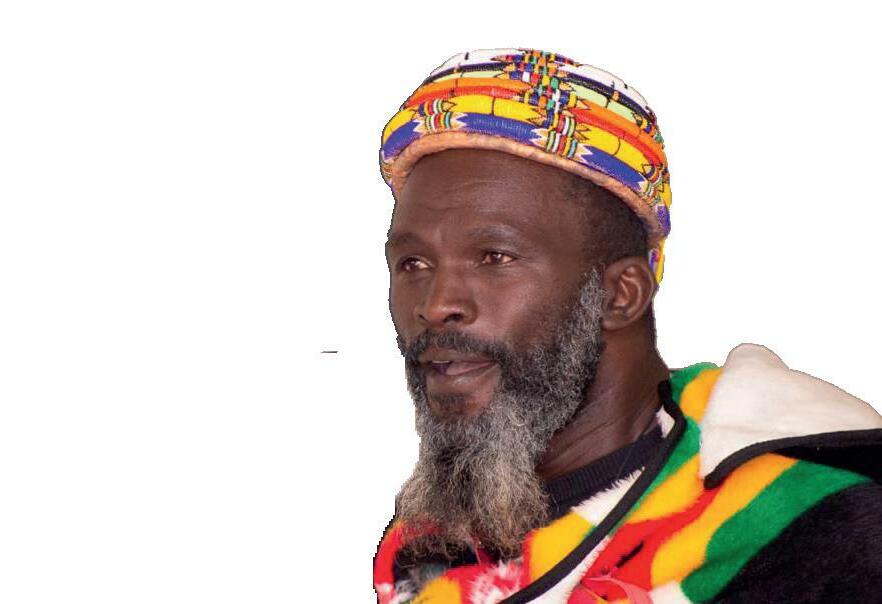
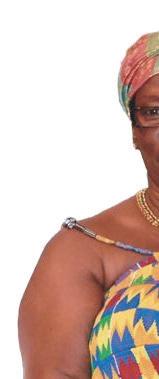
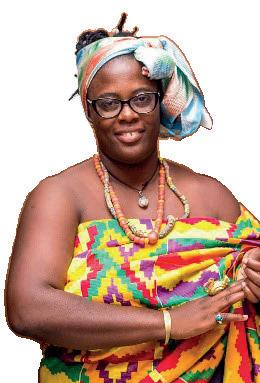
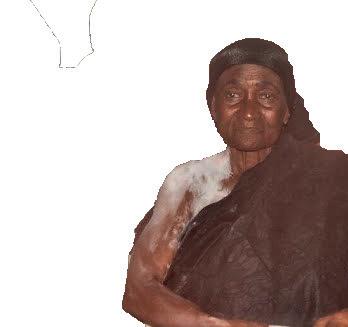



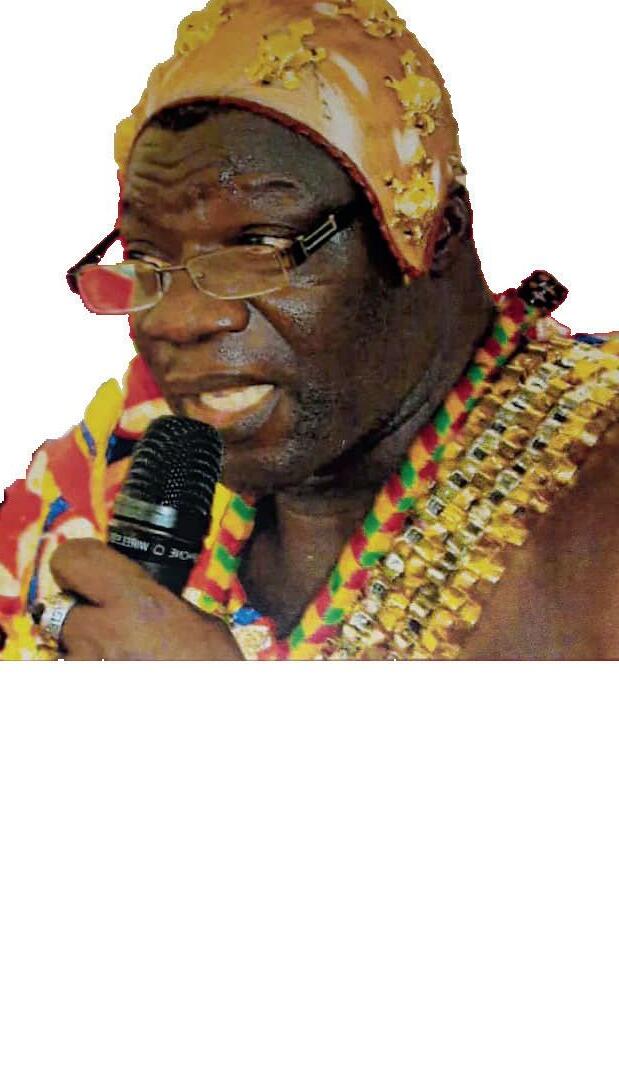
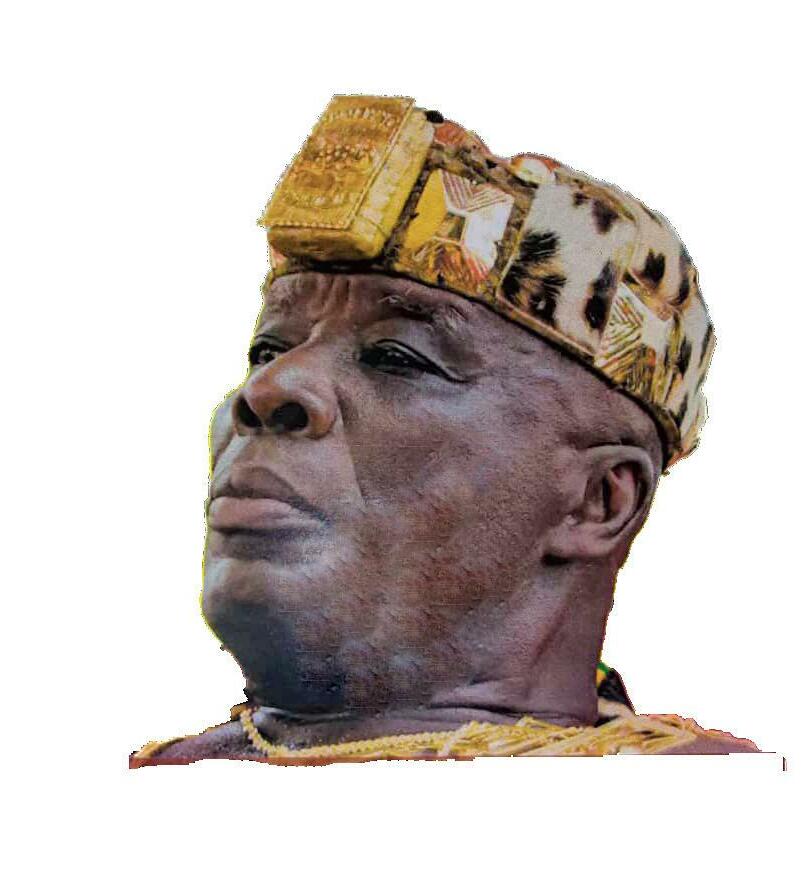

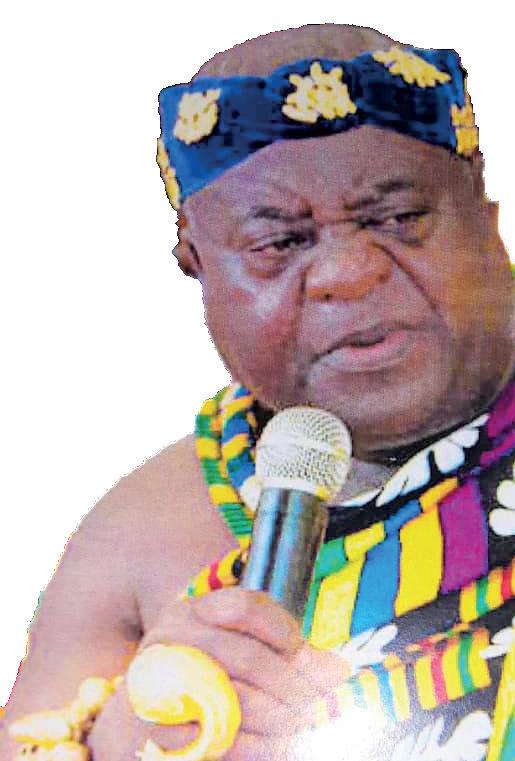

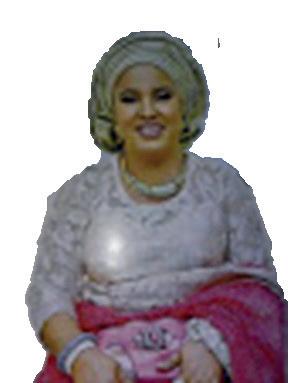



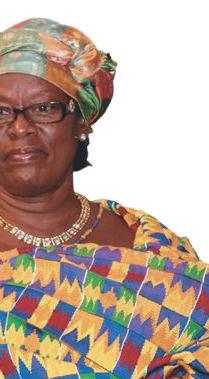

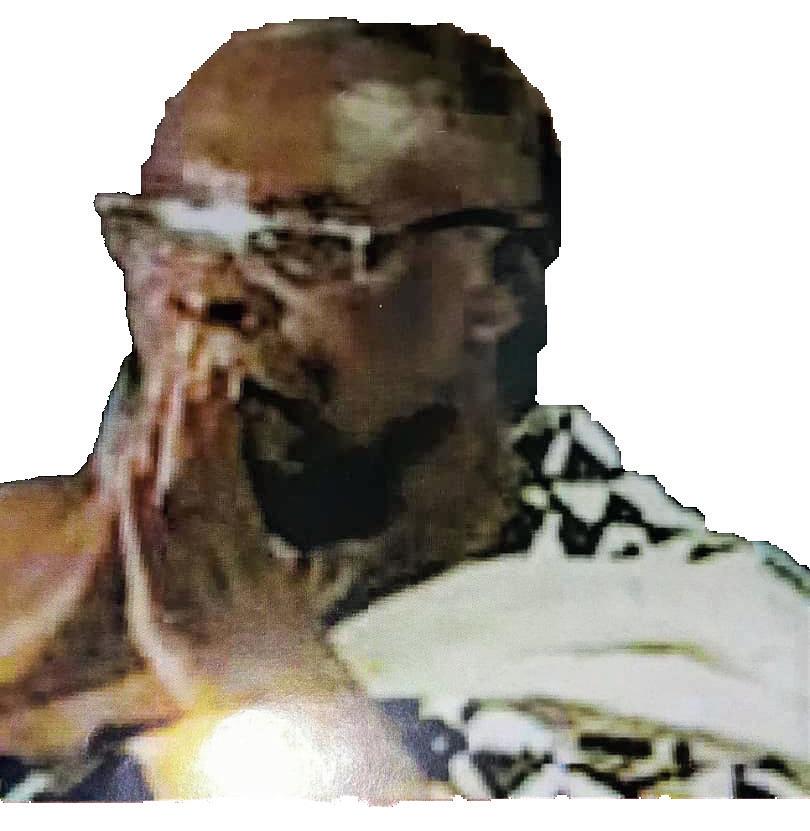
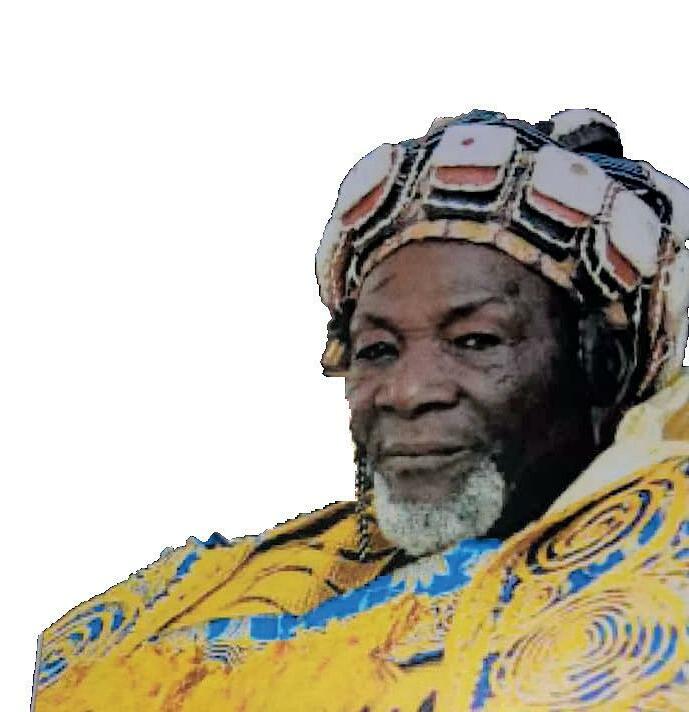

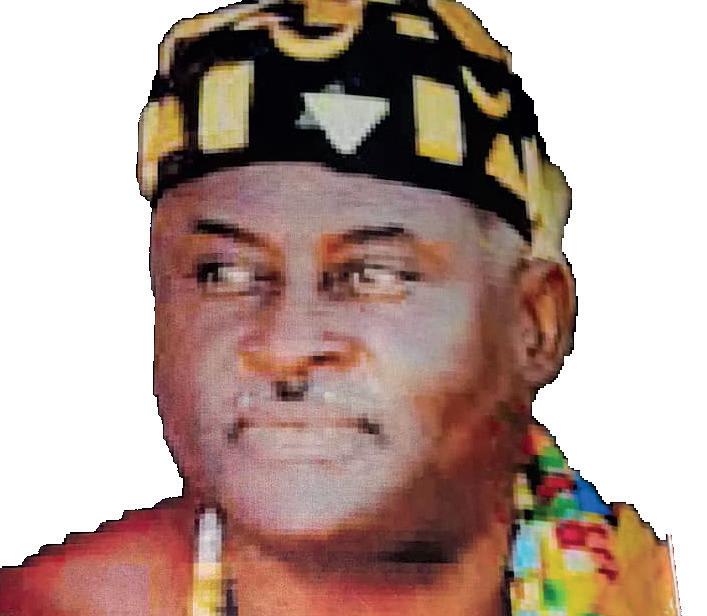

Back in 1997, a King was crowned in the Ashanti region of Ghana. This was a unique story that hit the front pages of most national newspapers at the time, along with extensive coverage on the BBC and other major news platforms.
For the first time people were given the opportunity to understand the different traditions around the culture, rulers and ancestors in Africa.
HRH Ohene Nana Agyemang Nyamekye Amlak Aduana Hene of Kwakye Dida Nsuta Ashanti as he was crowned, was originally living in the UK, having moved here from Jamaica, before learning of his African Ashanti roots during a trip to Ghana.
Nana Amlak was first featured in the now defunct Enterprise Newspaper, coverage which we have continued in The Phoenix Newspaper, leading to Amlak becoming an Ambassador for Phoenix Africa.
“I’ve been on this journey for more
than 20 years in 1997 from when I first came to Ghana on the 2nd May 1997.
“The Phoenix featured me at that time, and Dr Marcia has helped with building a school in my town, as well as building a community football team and helping the elders too. The Elders gave her the name Ama Agyemang.”
We have worked with Ghanaians for the past 25 years, providing positive editorial content in order to preserve and enhance the true beauty of Africa, its people and its culture.
In our 10th year, it is fitting for us to demonstrate the importance of reconnecting with your ancestry.
Since the Year of Return, Ghana 2019, an initiative by President Nana Akufo-Addo to encourage African diasporans to come to
Africa (specifically Ghana) to settle and invest in the continent, there has been a large influx of people from the diaspora flooding into the continent and especially Ghana.
“The Elders told us the story of the Gate of No Return, when our people were stolen and taken away from Africa and put to work for the colonialist empire, but we thank god that we are now returning.
“Now we live in a world that respects human rights, which allows us to be here today.
“It’s not been an easy journey, but we have survived this far. 2 years ago my ancestors have told me to come home. The President brought in the Year of Return, inviting home all people, with free visas to all Jamaicans, and straight flights are now available too. We’re coming together slowly. I’m happy to be here in Mampong.
“We in Jamaica see ourselves close with Ghana, even the food we eat, the weather
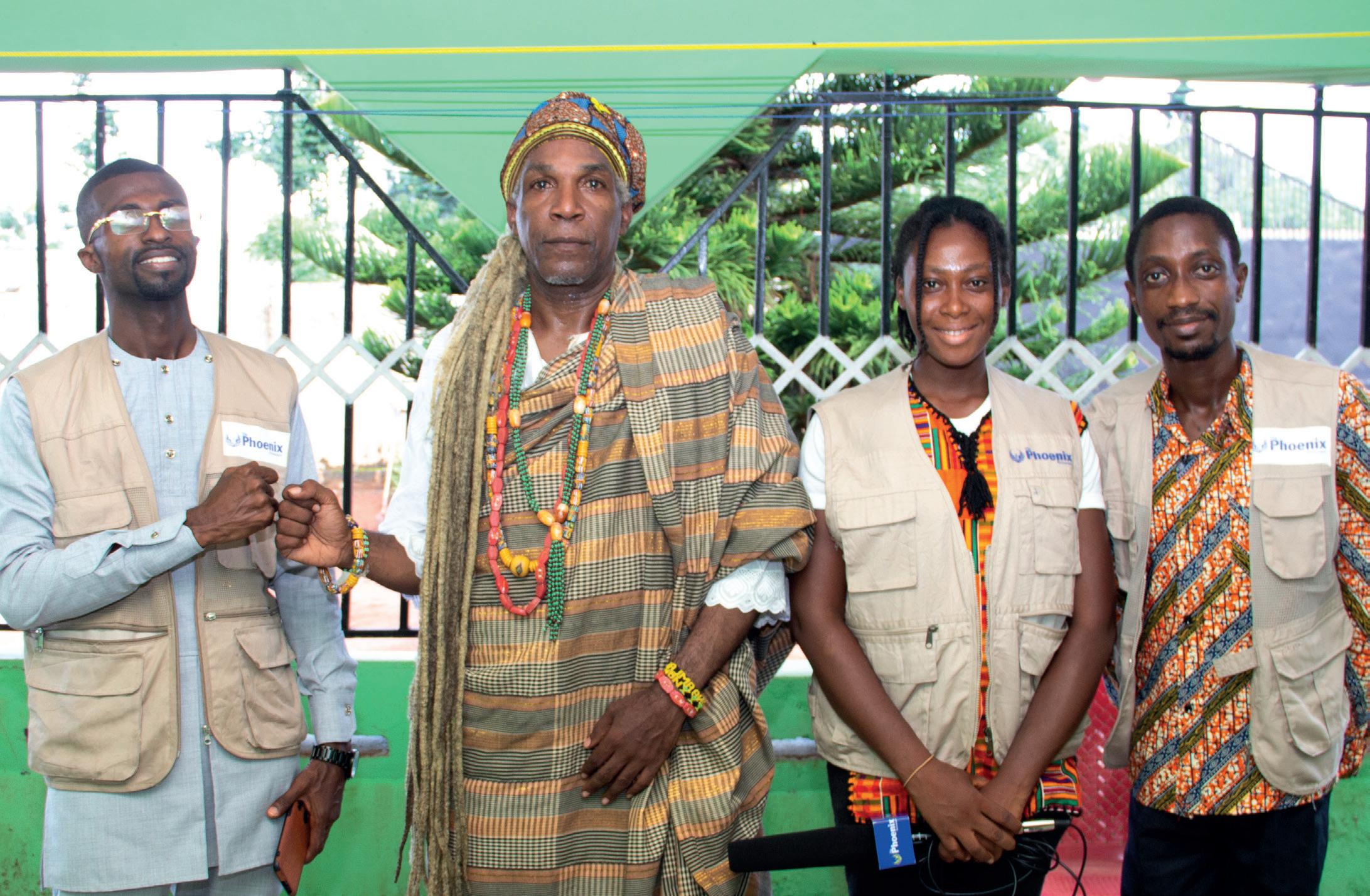
and climate, I’d say Ghana is ‘Giant Jamaica’.
“I’ve now got a responsibility to the people in the diaspora as well as to my people in Africa.
“If I’m abroad, I represent the people of Africa in the highest way, and if I’m here in Africa, I represent the people of the diaspora in the
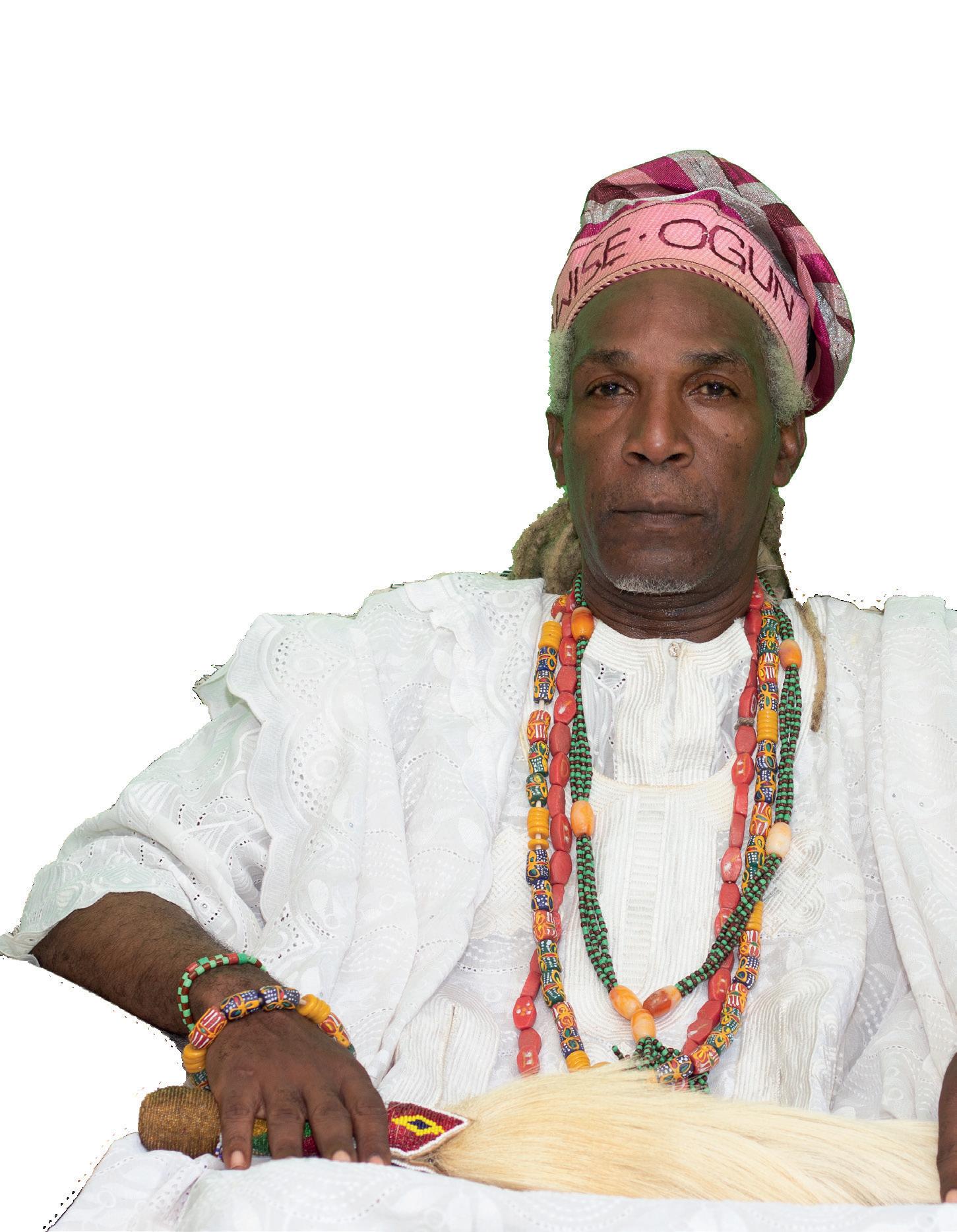
highest way.
“It’s time to come home, Ghana is a peaceful country, and it’s time to return to our roots and rebuild.”
As a Commonwealth newspaper, which has been endorsed twice by His Imperial Majesty, HRH The Ooni of Ife, Ooni Adeyeye Enitan Ogunwusi Ojaja II, once when Founder/Editor In Chief, Air Commodore Dr Marcia McLaughlin F.Birm.Soc travelled to Nigeria with the intention of meeting this powerful leader of the Yoruba people worldwide, where she was welcomed by all the elders and Phoenix Newspaper was prayed for and blessed by the

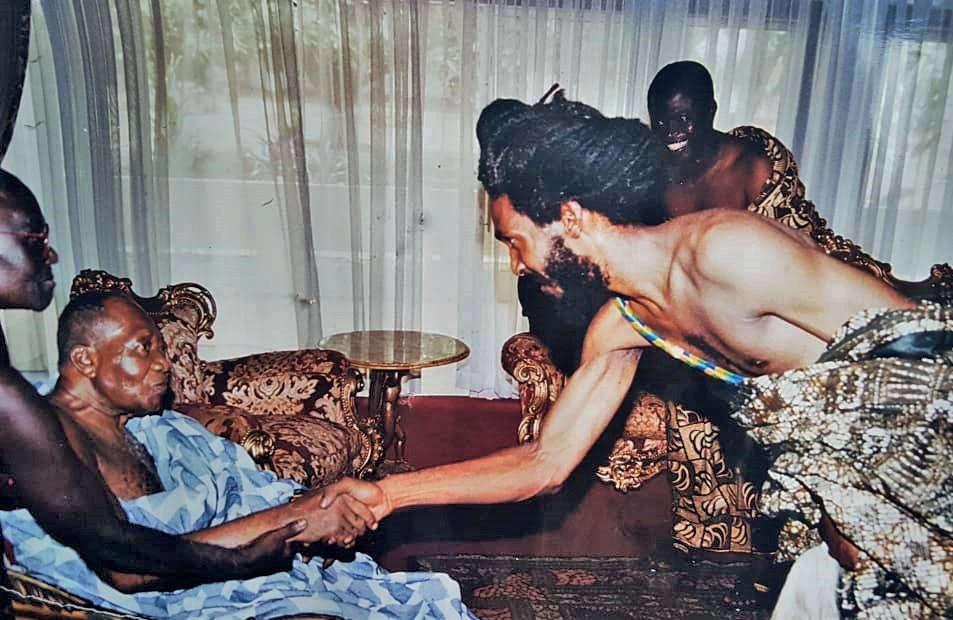
spiritual gatekeepers of Ile Ife.
He confirmed this endorsement again when he attended The Phoenix Newspapers 7th Anniversary Gala Dinner and Awards in Birmingham, after he met with Birmingham City University, Greater Birmingham Chambers of Commerce and other leaders of the city, where he reiterated that the trusted link between Africa and the UK was through Dr Marcia and The Phoenix Newspaper.
He made a point of saying that Africa is in need of positive upliftment and he was proud to endorse the work that we do.
“I am also a High Chief in Nigeria, in Ile Ife, where they call it the Cradle of the Yoruba Race.
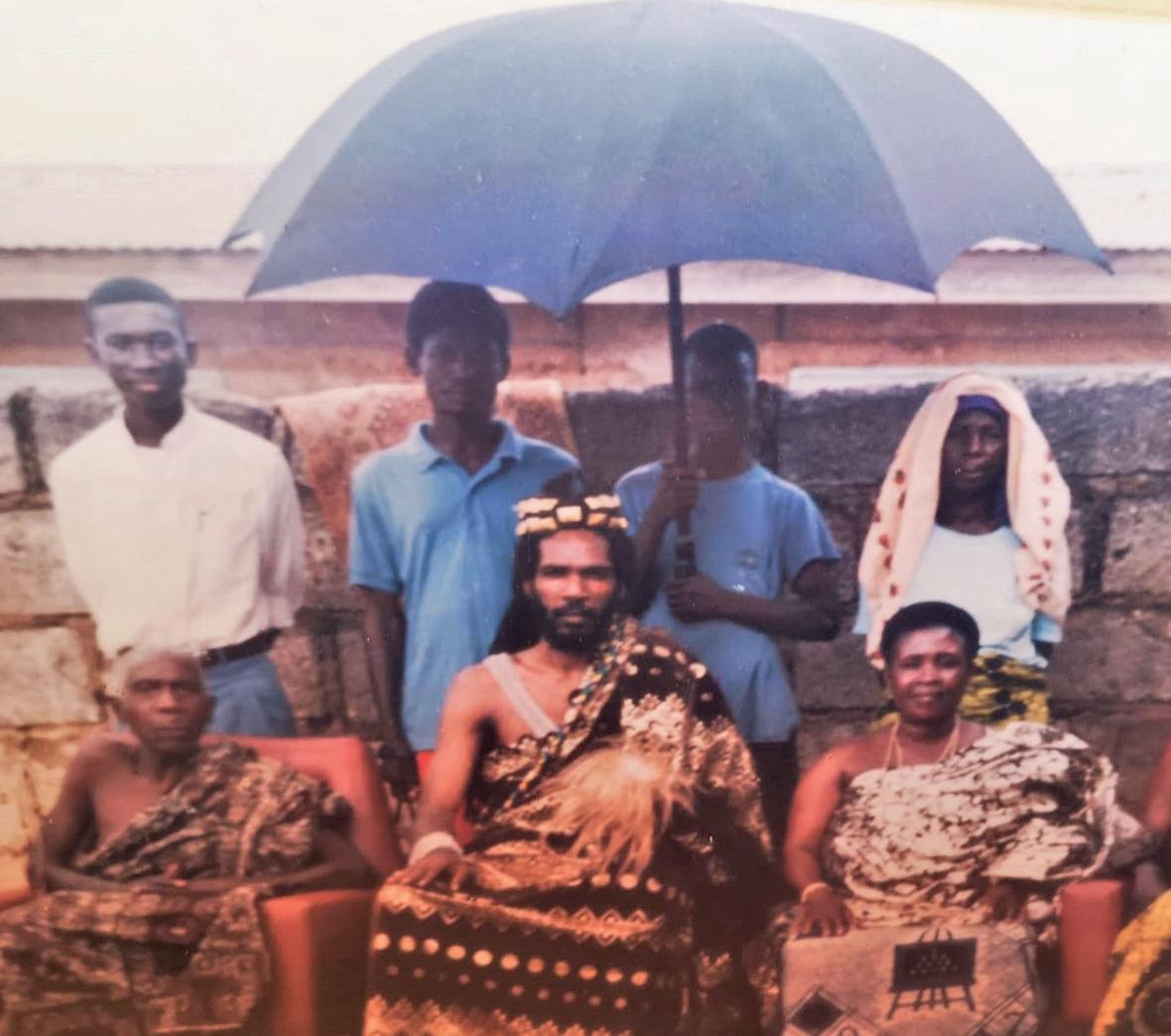
“I am an Ambassador of The Phoenix Newspaper, and have been working with Dr Marcia for a very long time, because it is a newspaper that wants to bring people together.
“Mampong means ‘The Stone That Broke The Axe’, and I’m trying to teach people about their culture and language, when I bring people here.”
Once again, with the credibility and foundation that The Phoenix Newspaper has laid down across Africa, linking the diaspora with the motherland, as the UK's only Commonwealth newspaper, this year is time to celebrate our unity and strength during Her Majesty Queen Elizabeth II's Platinum Jubilee year, and her firm connections with her Commonwealth.

